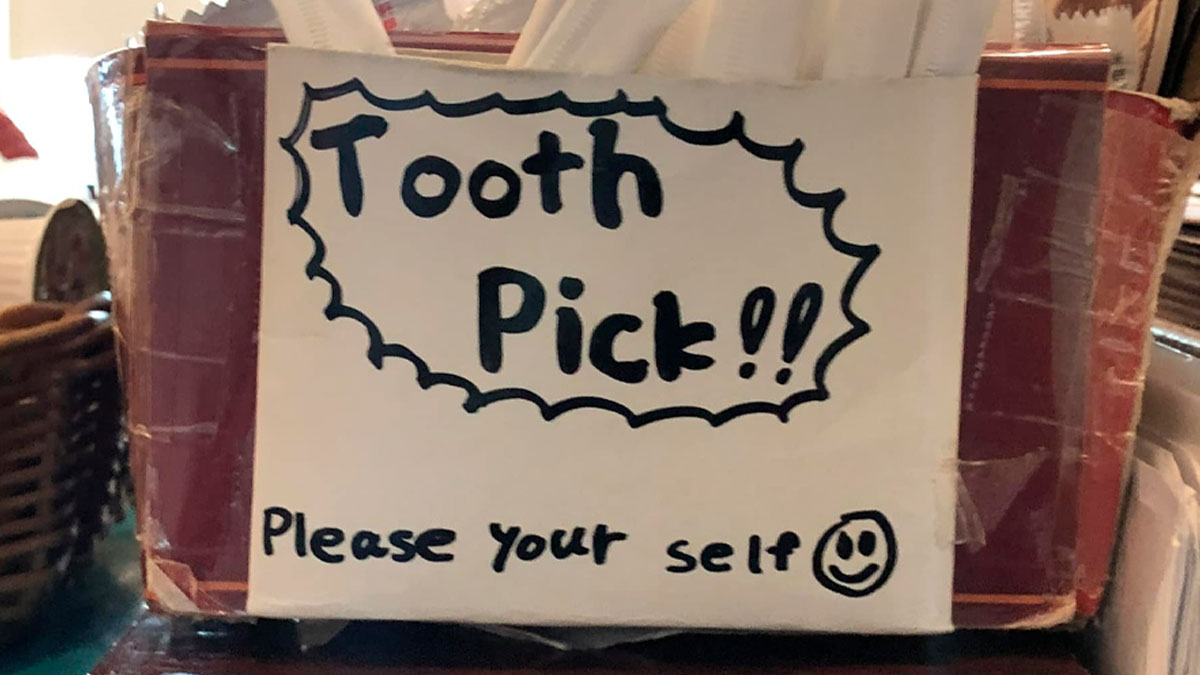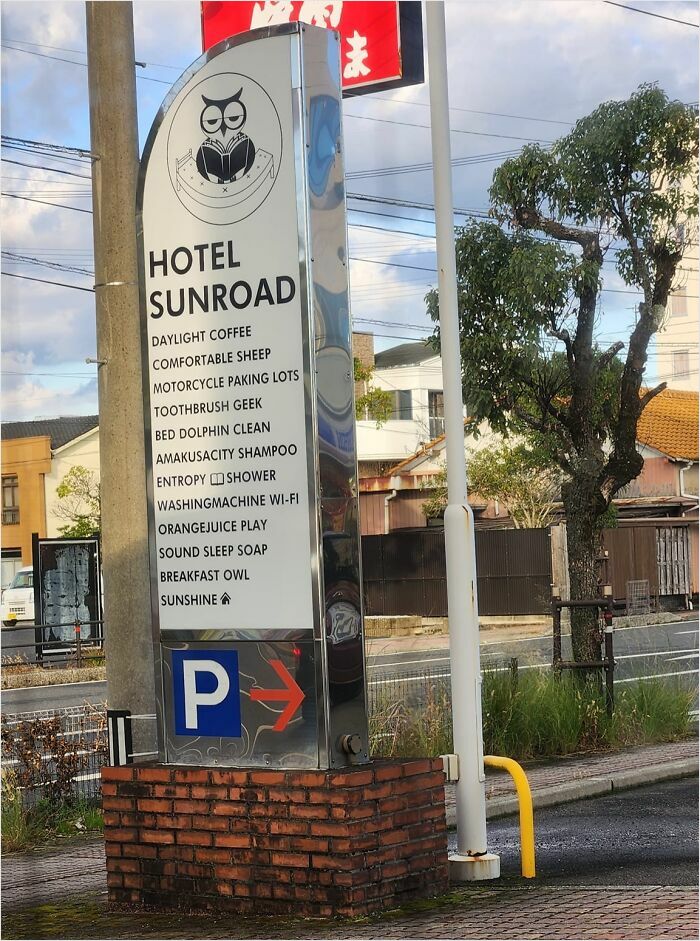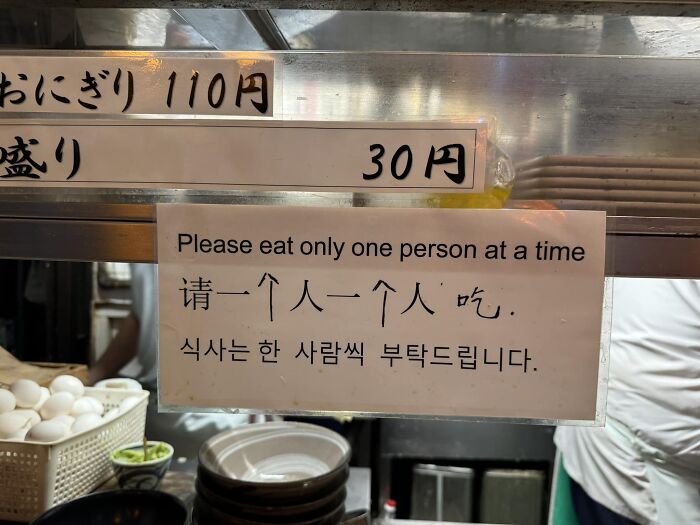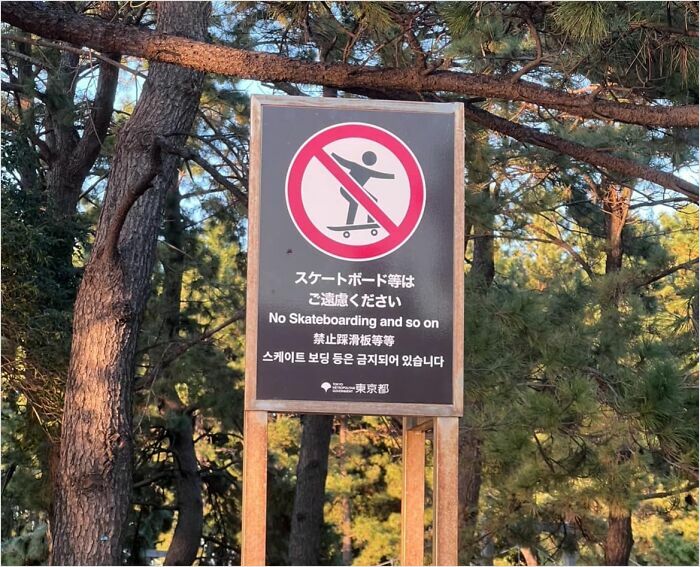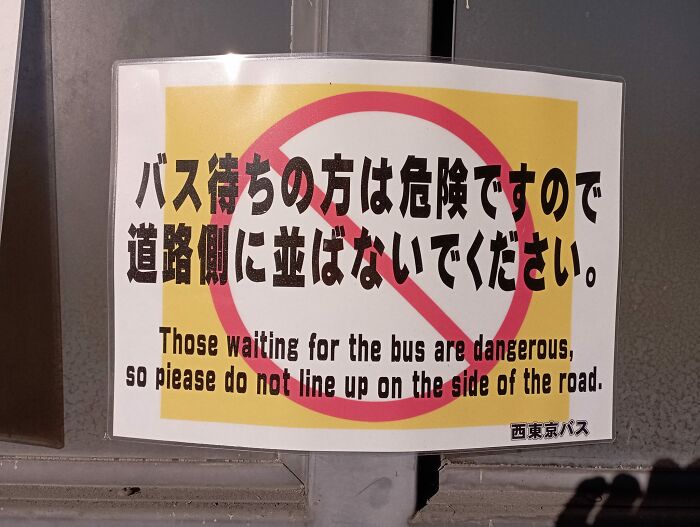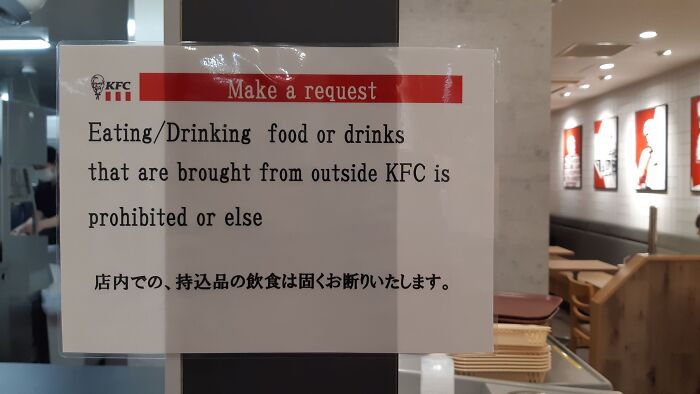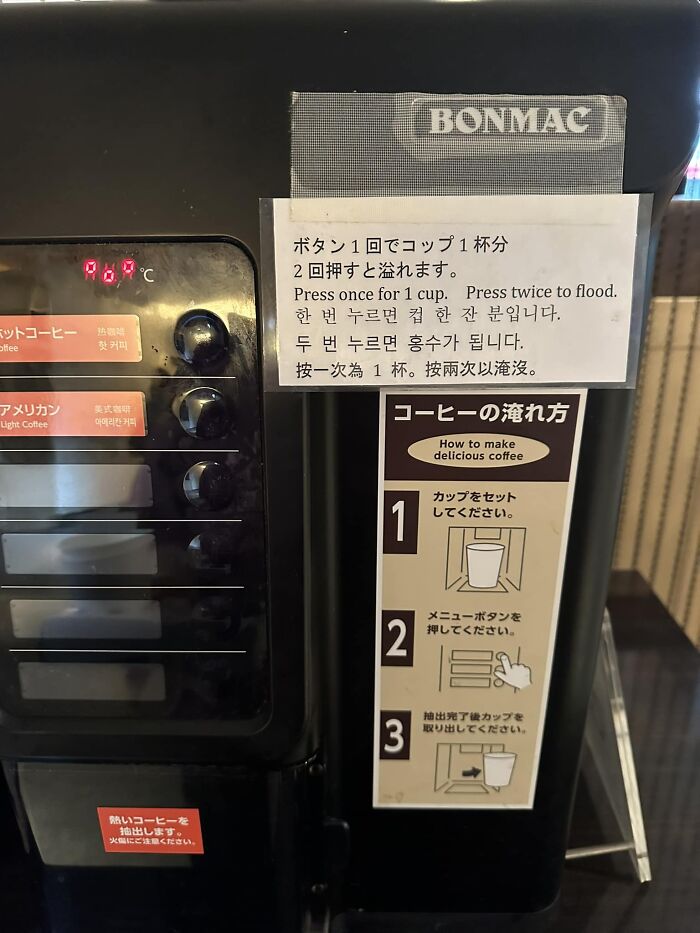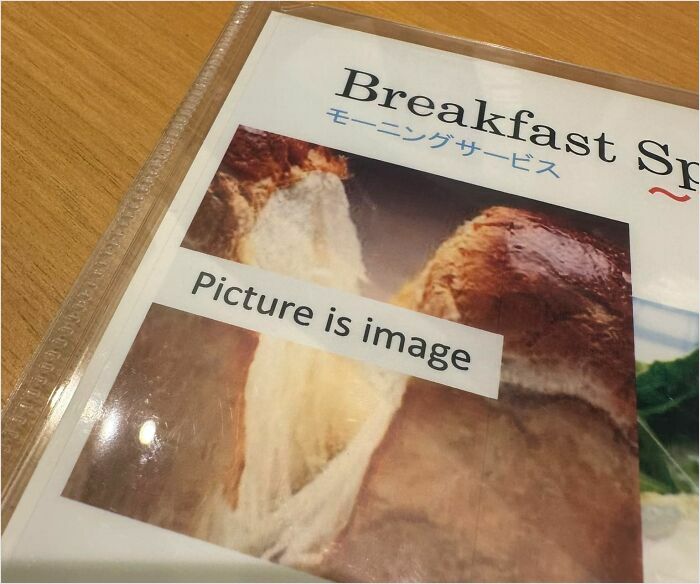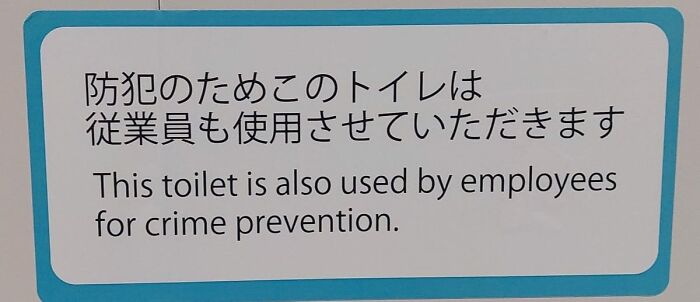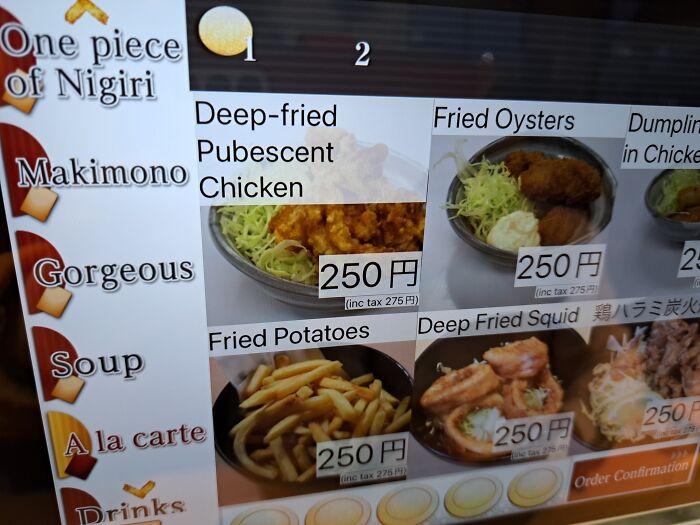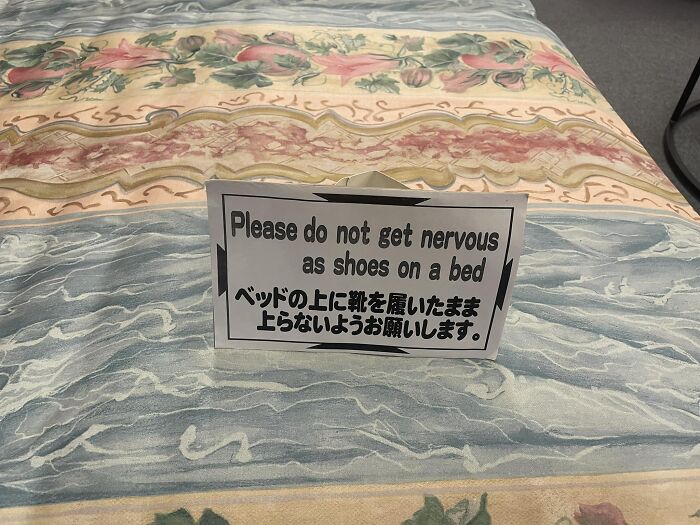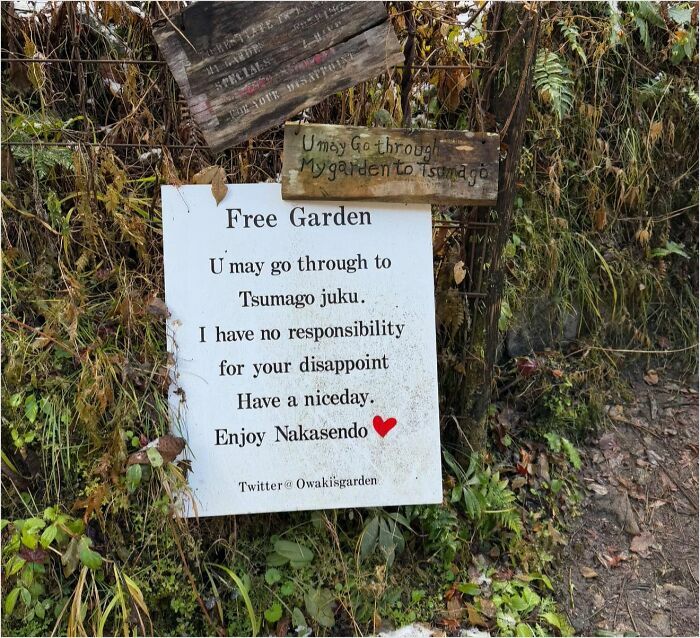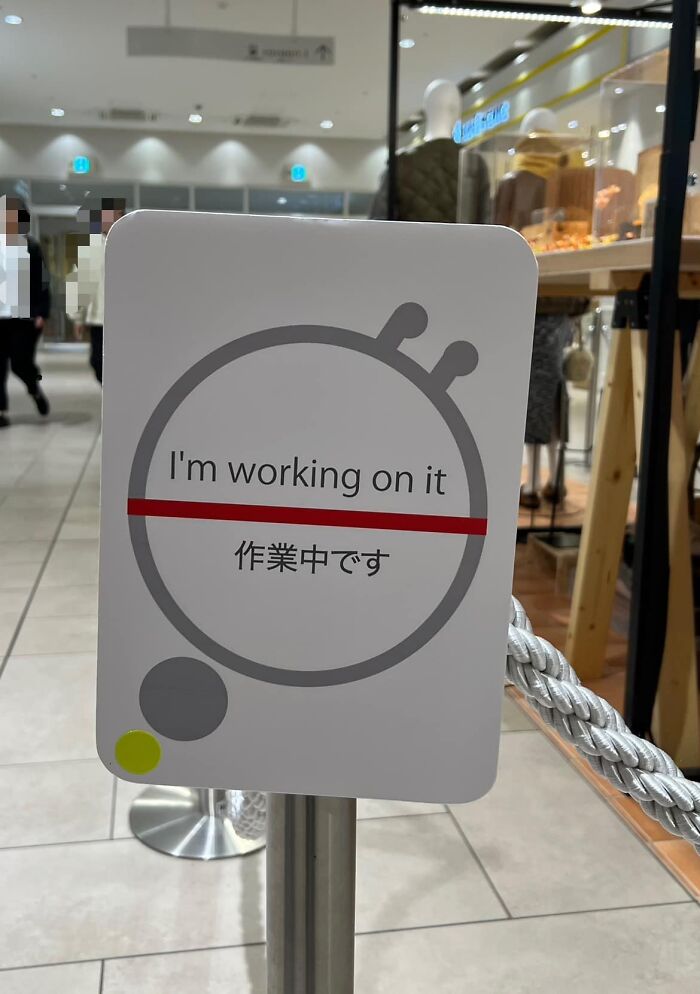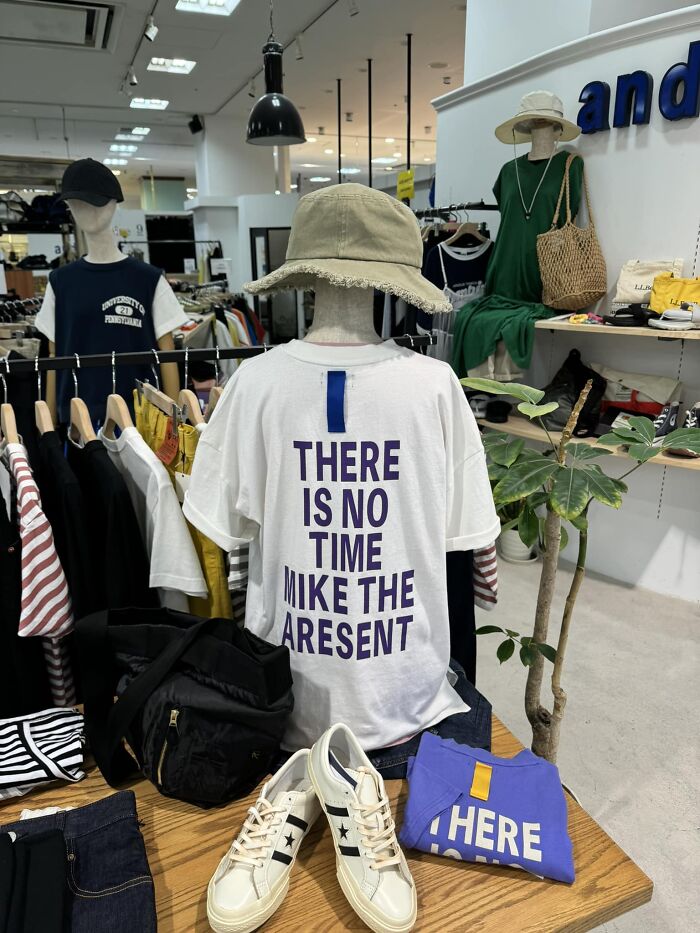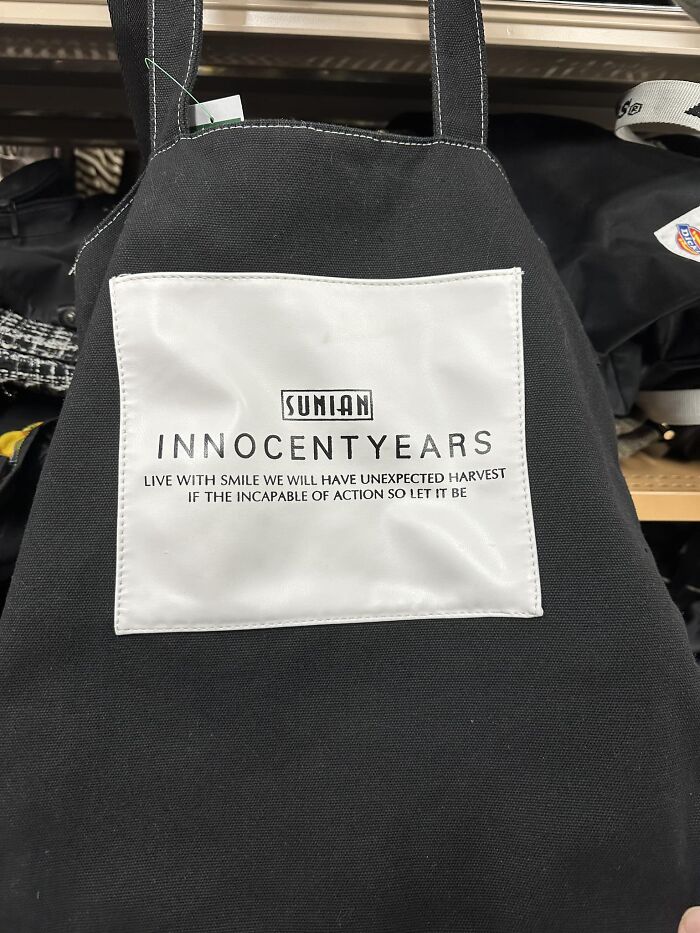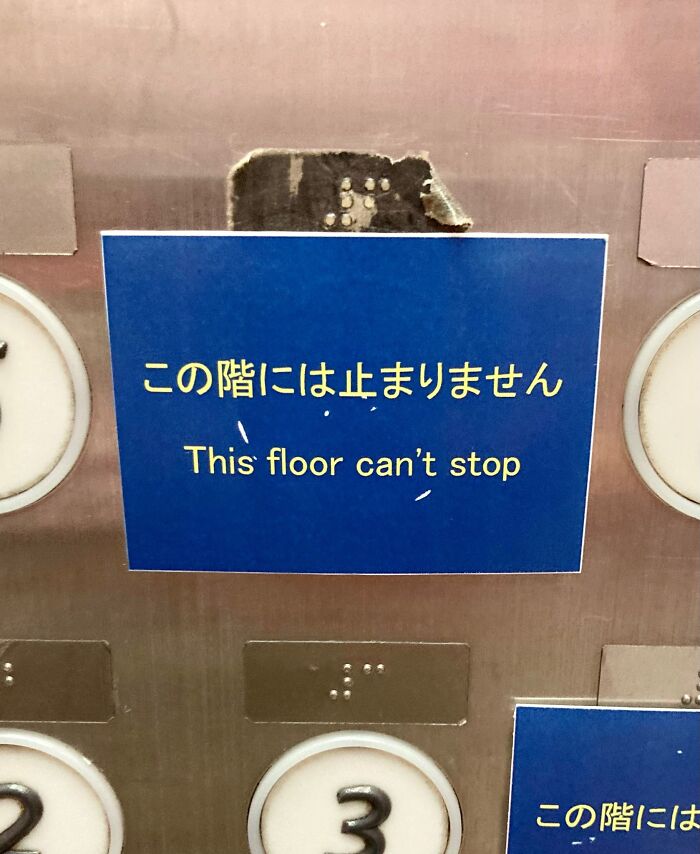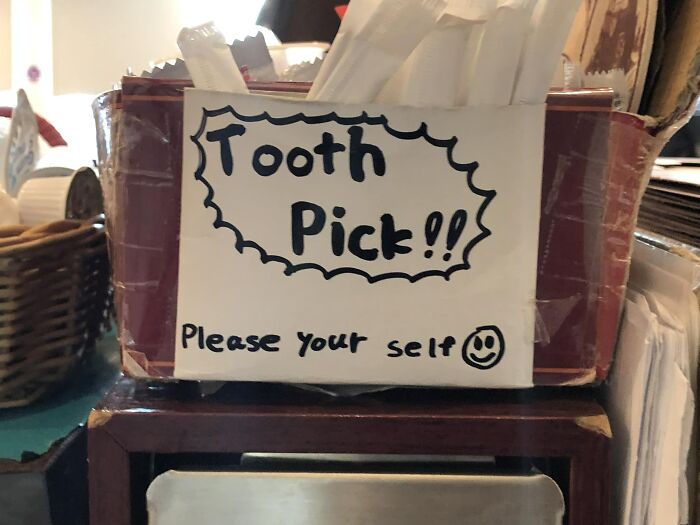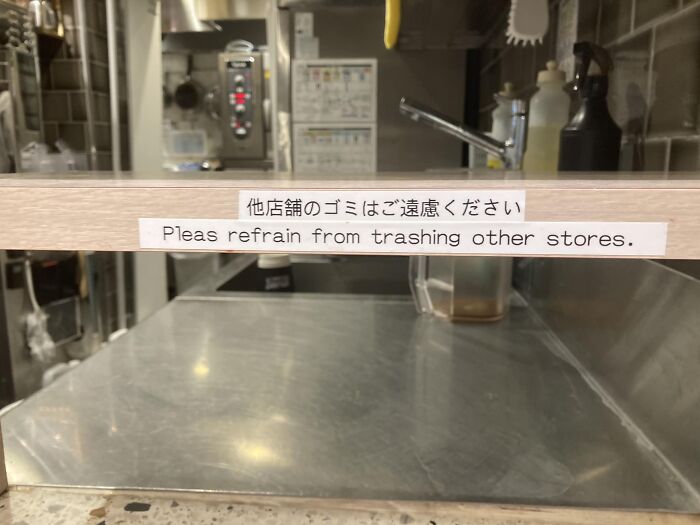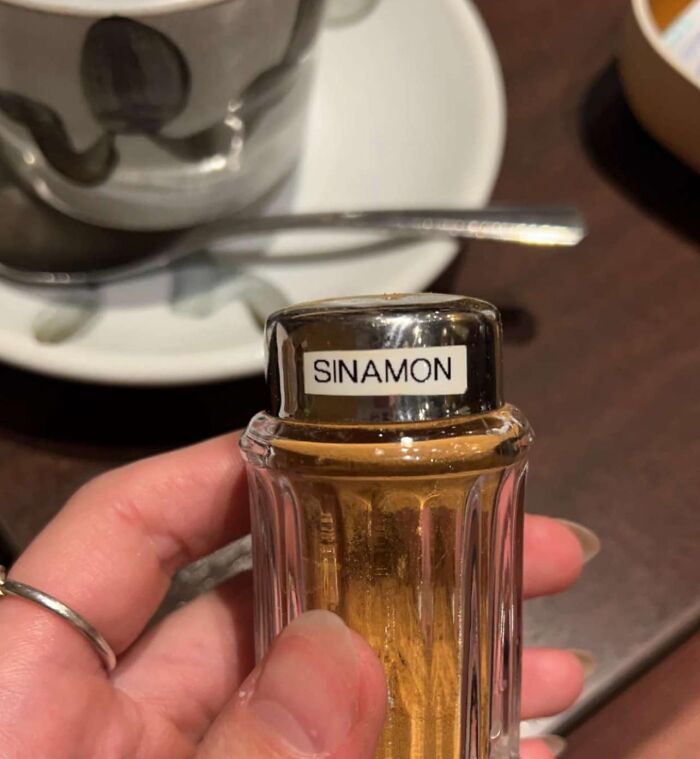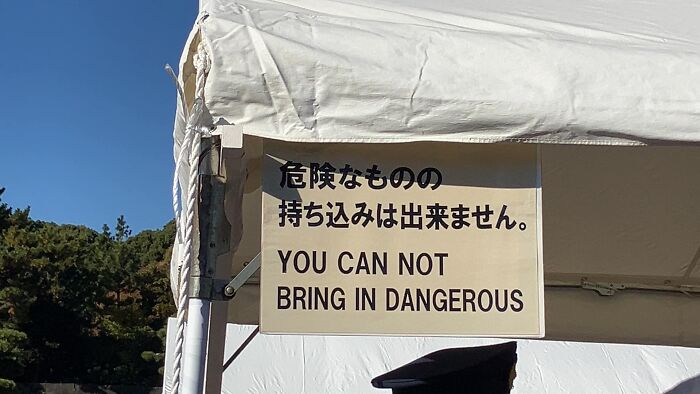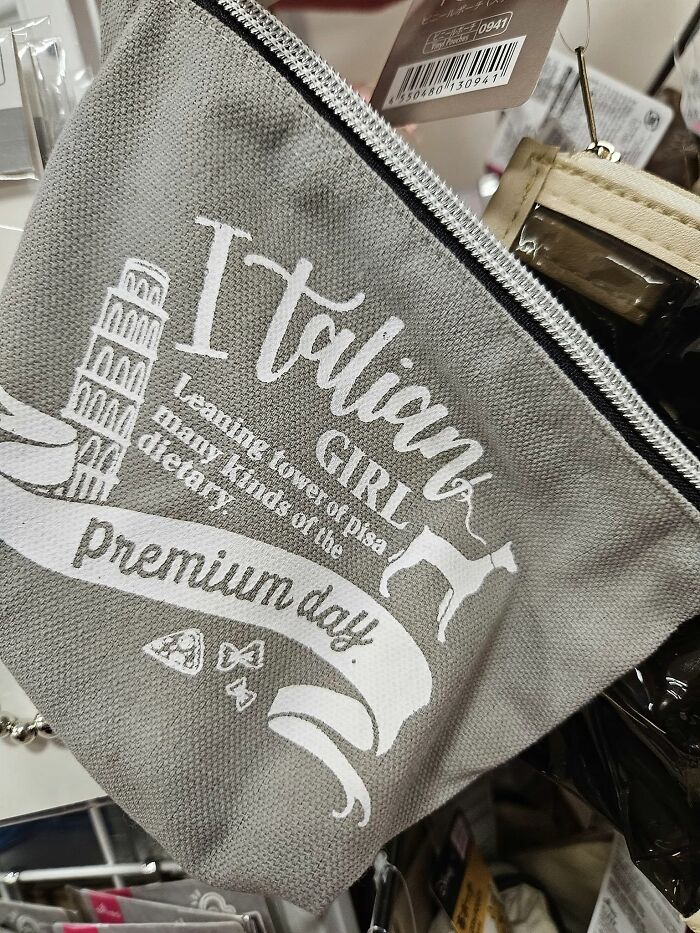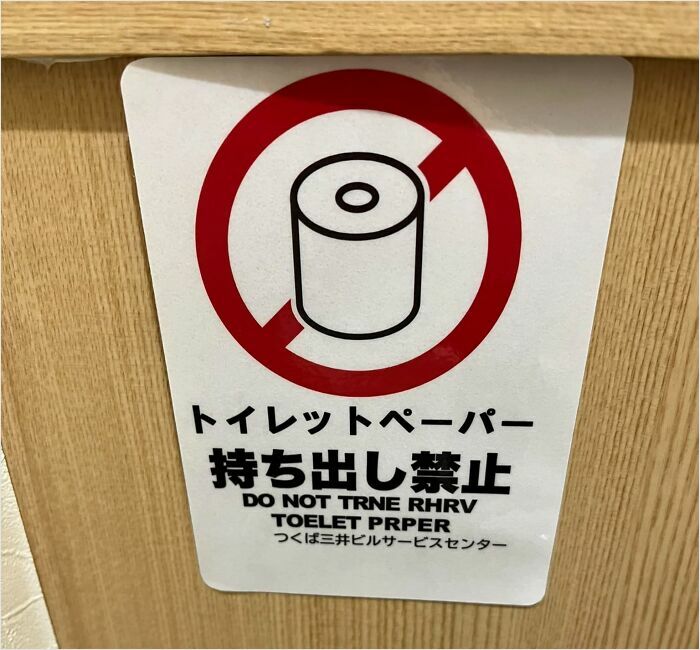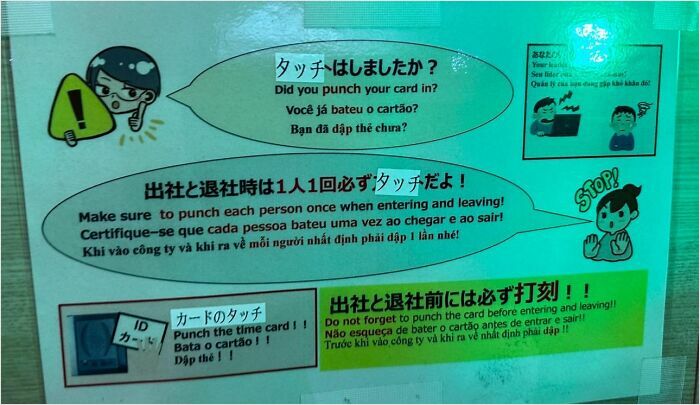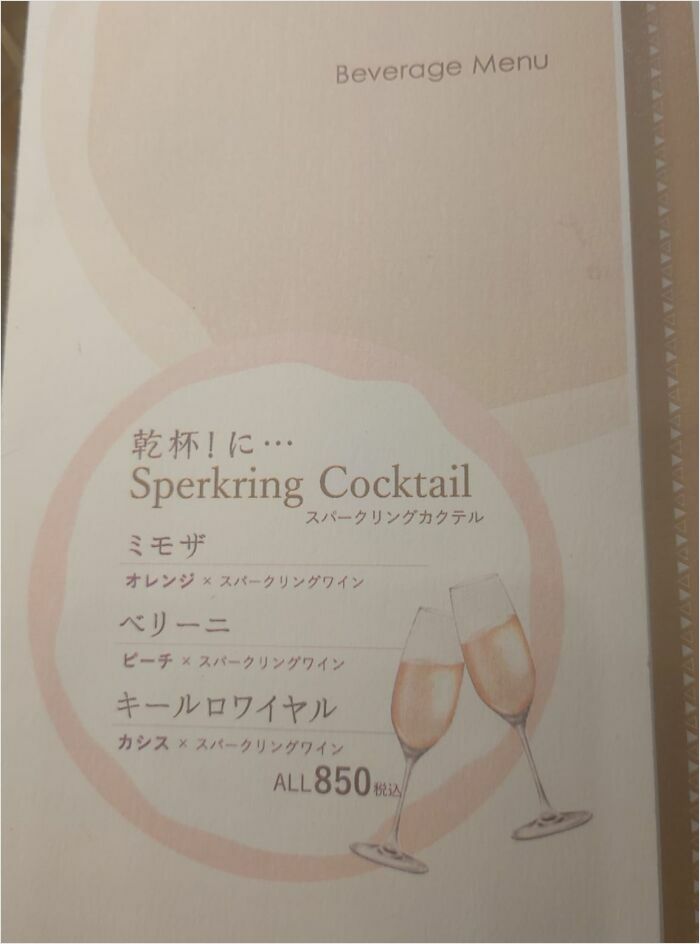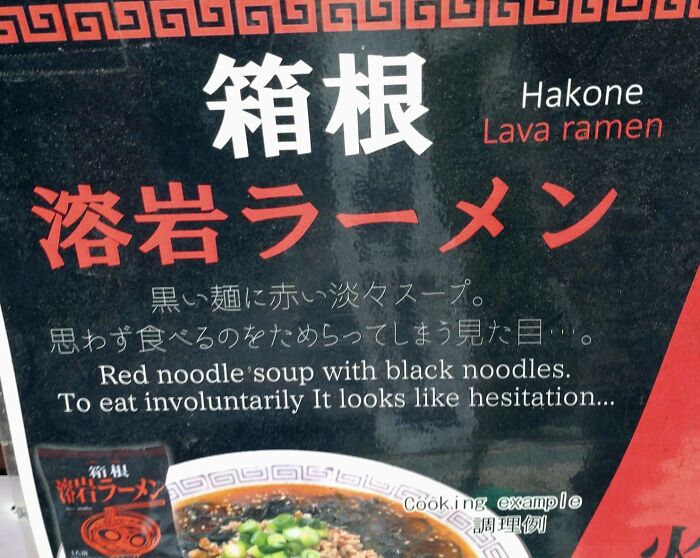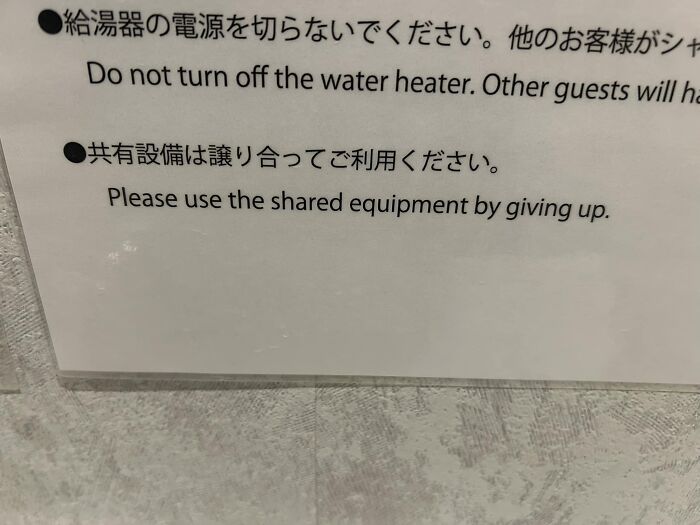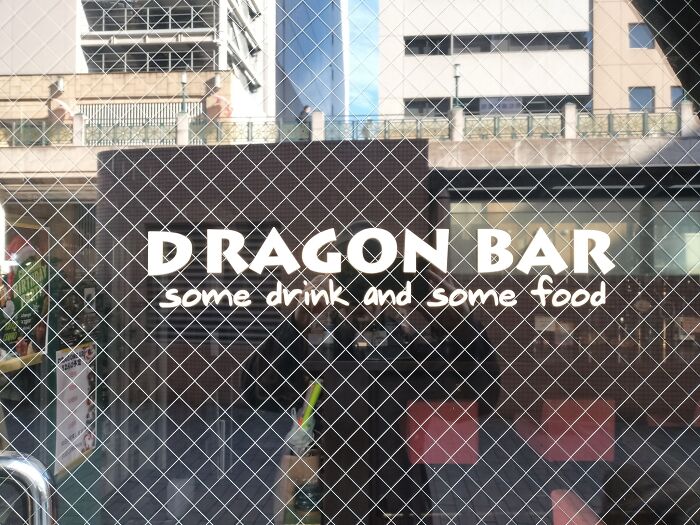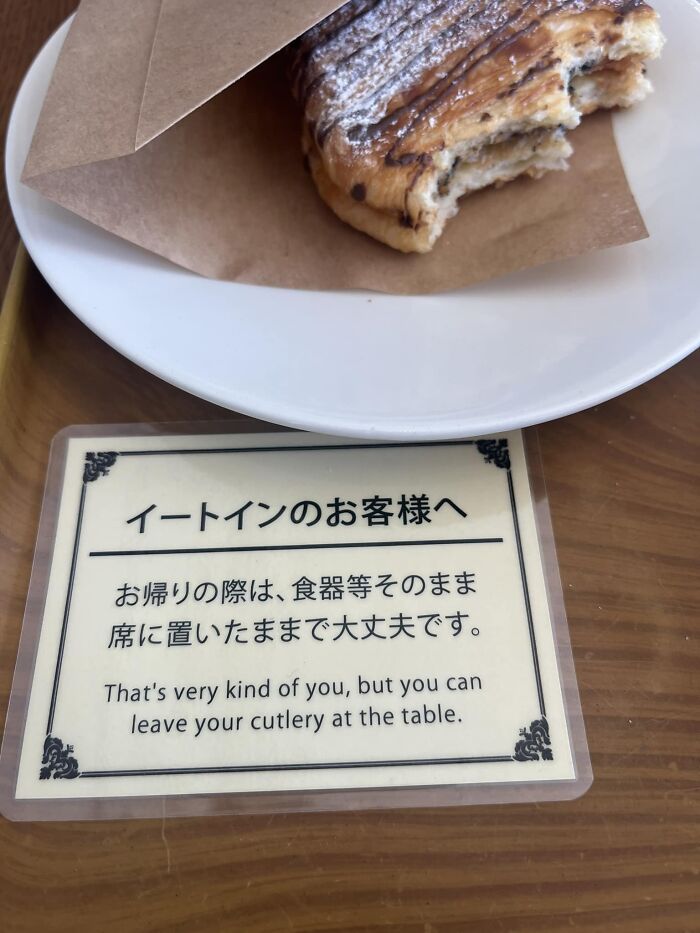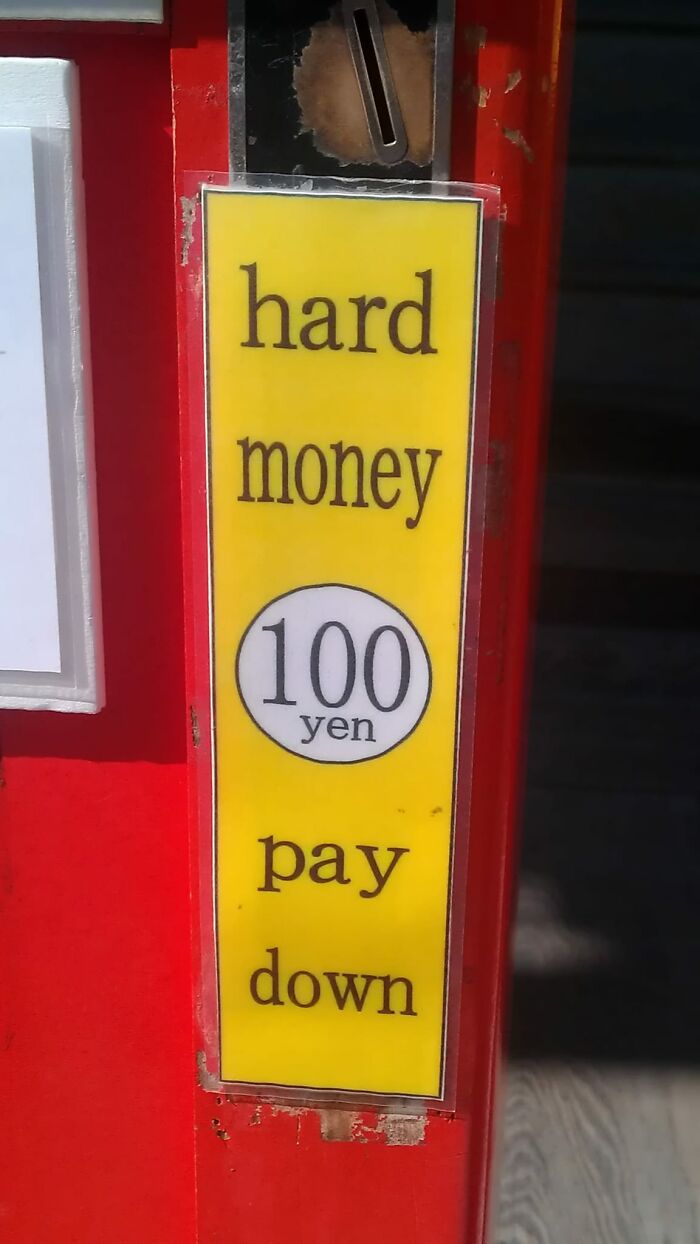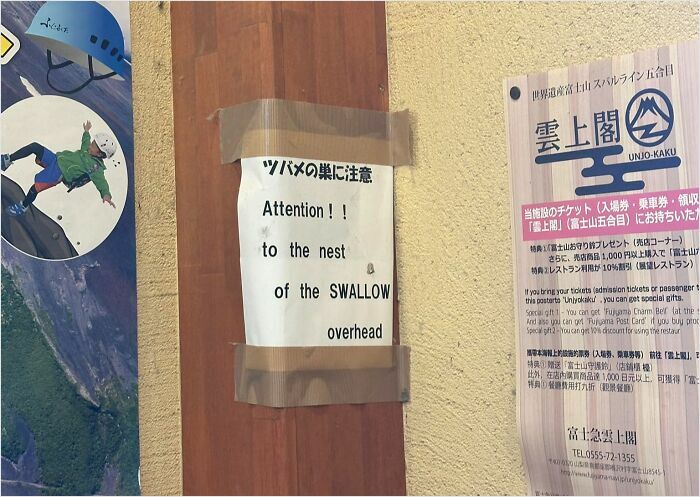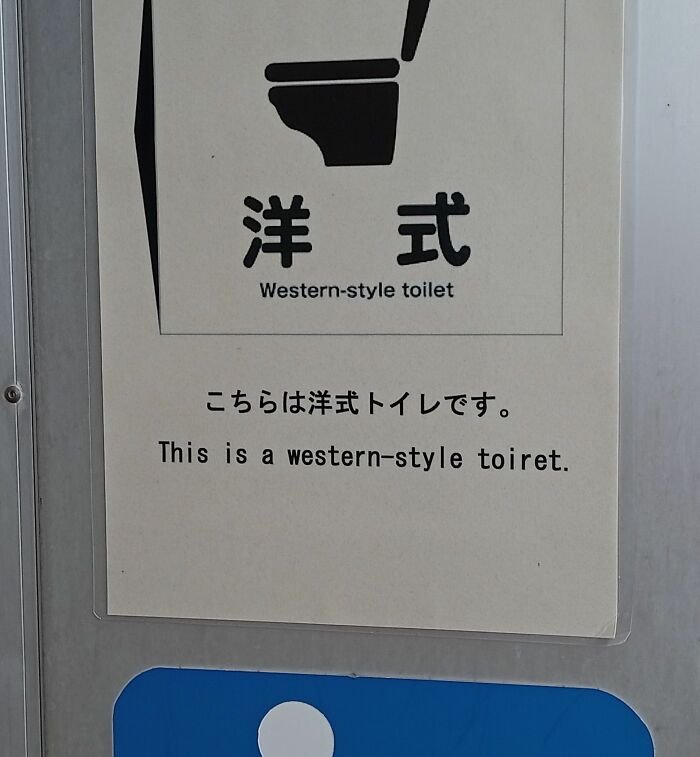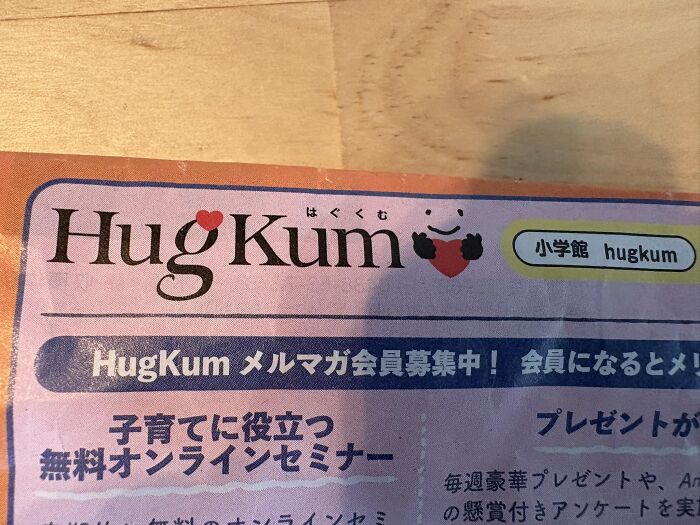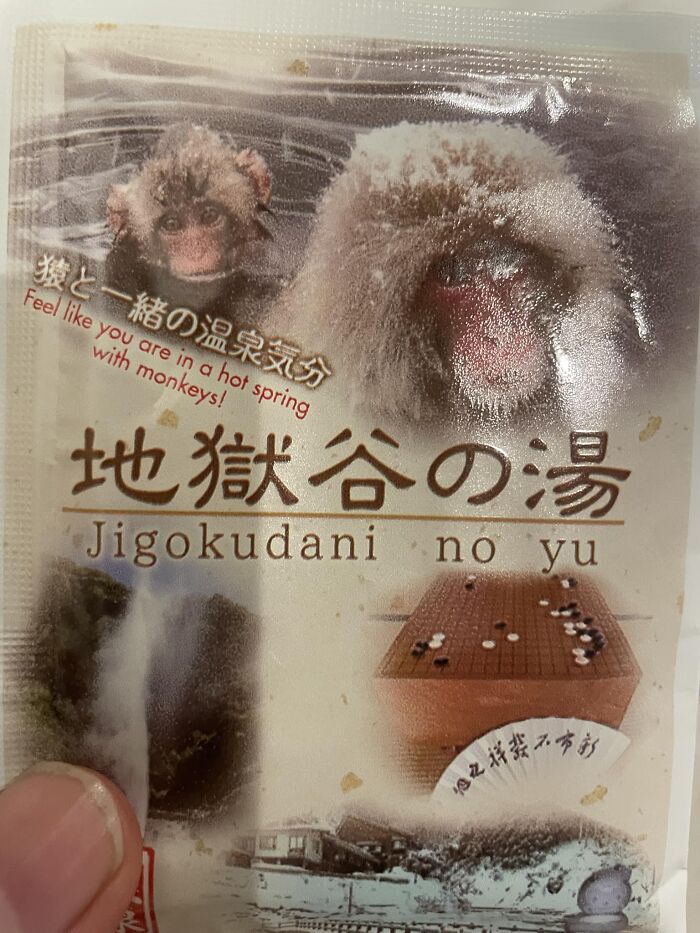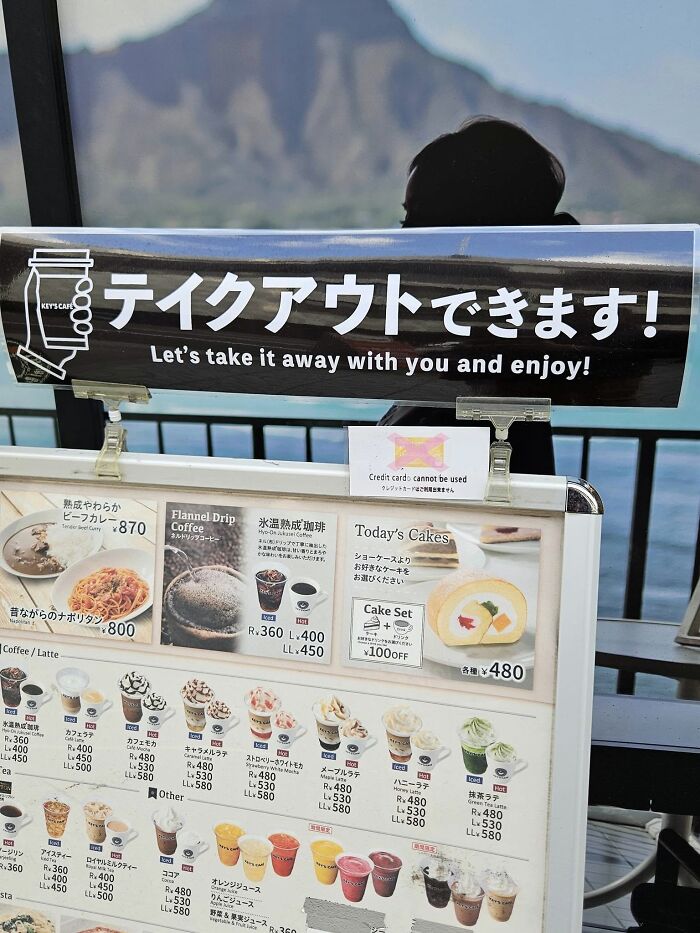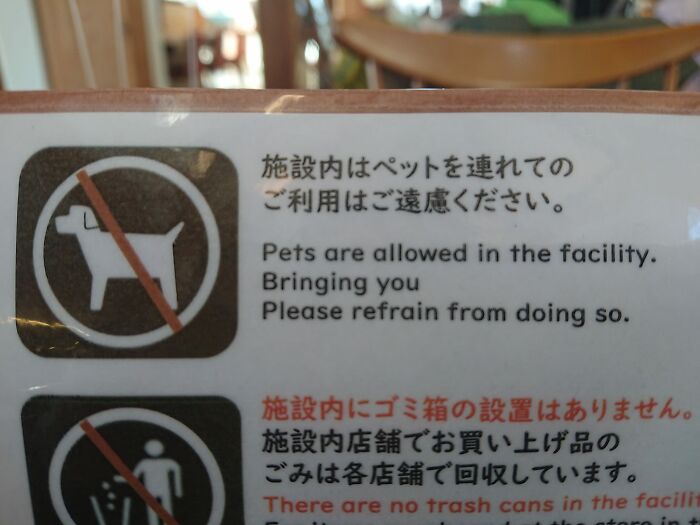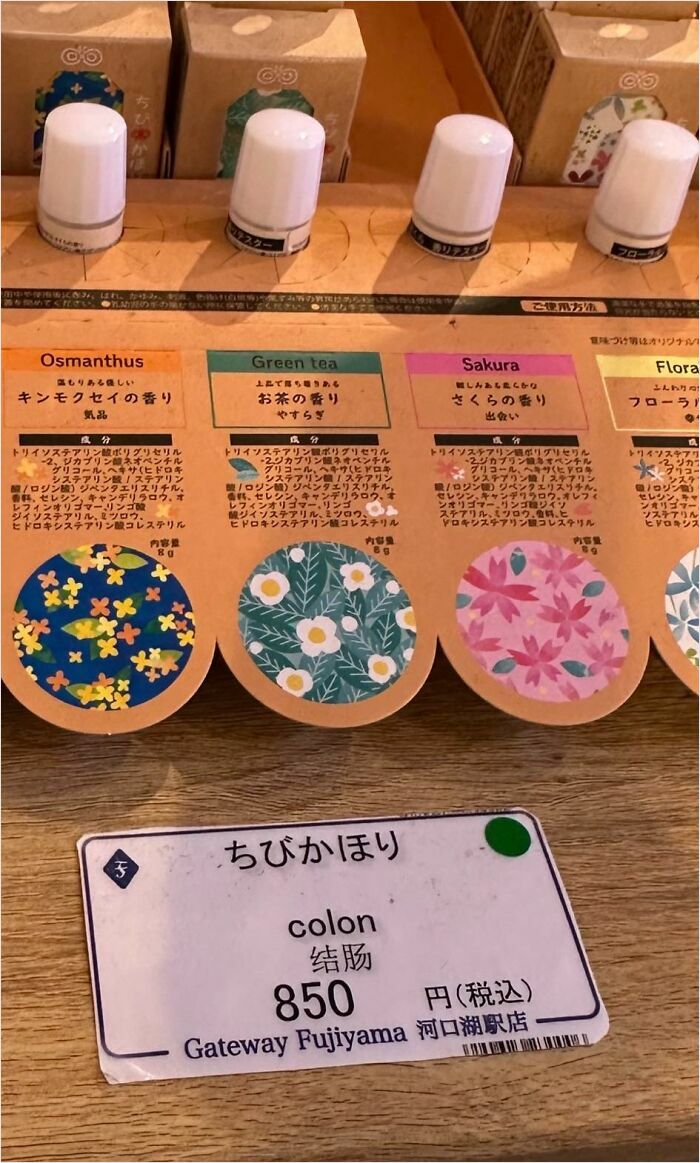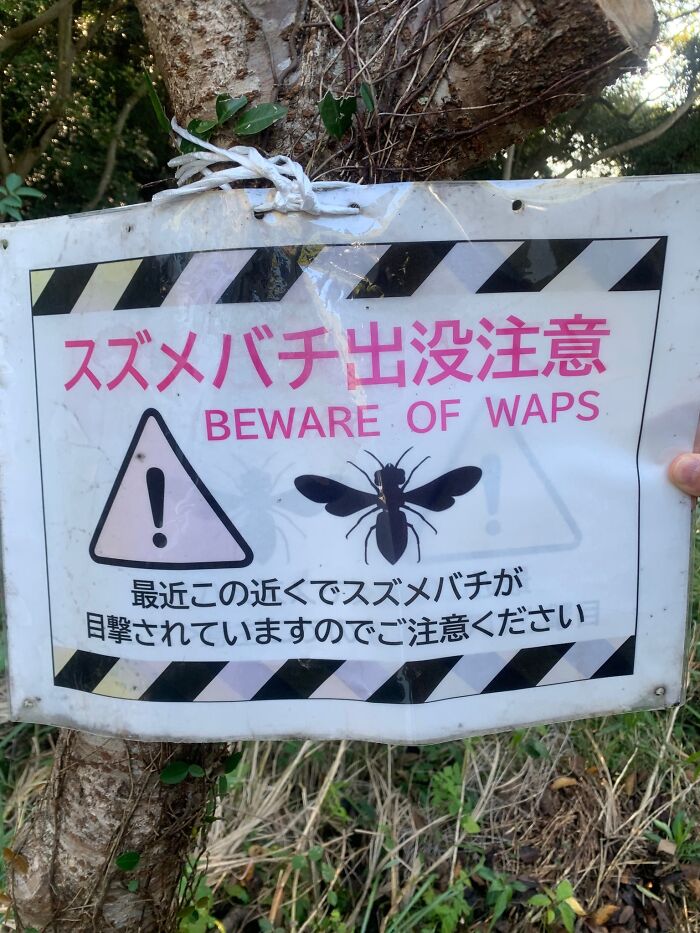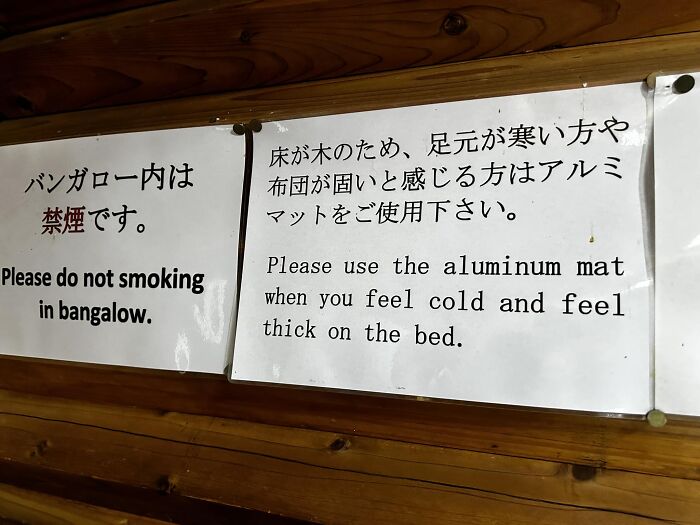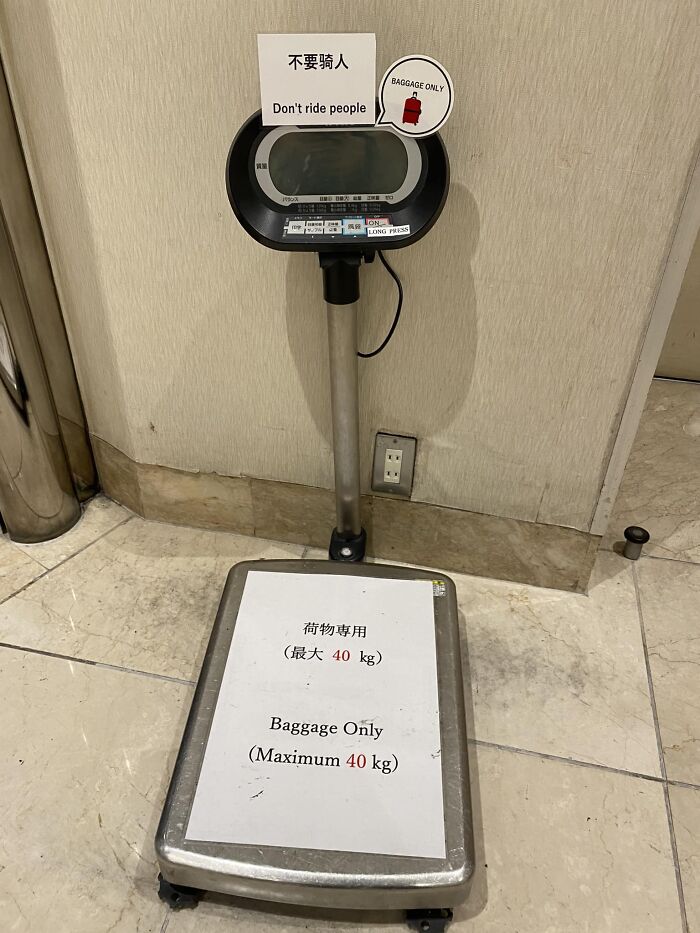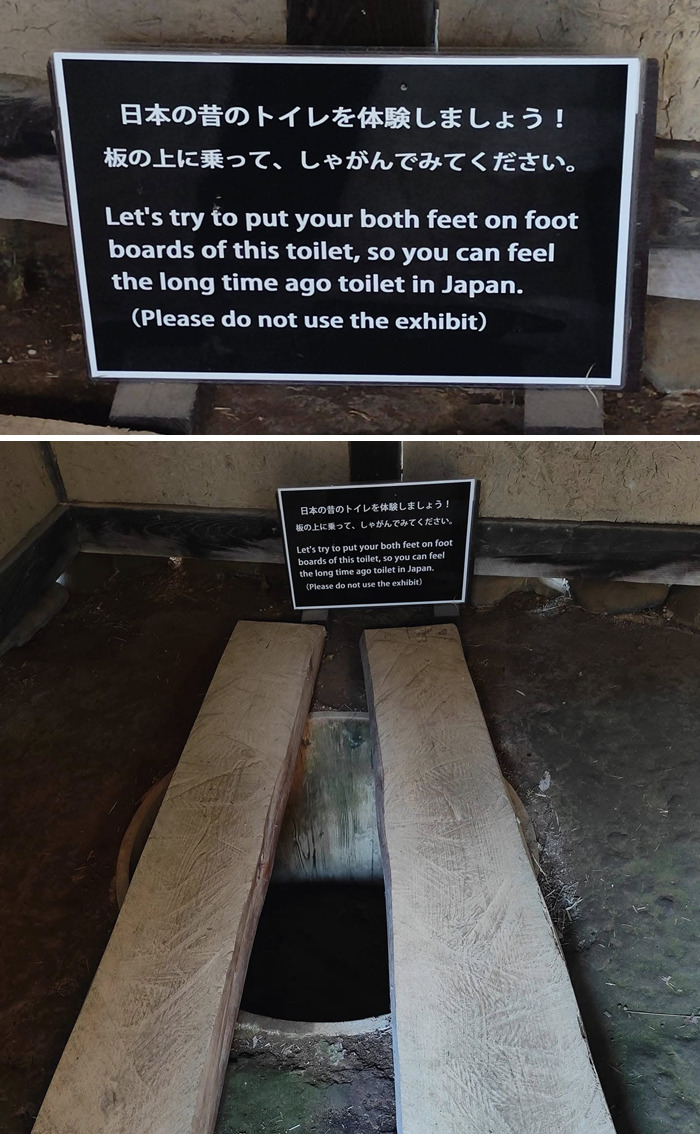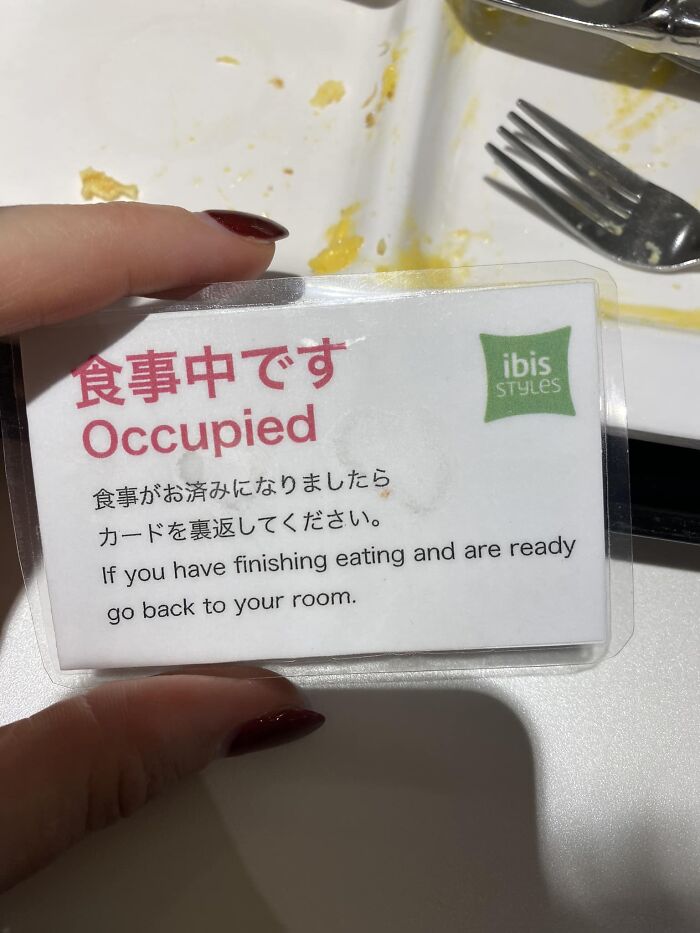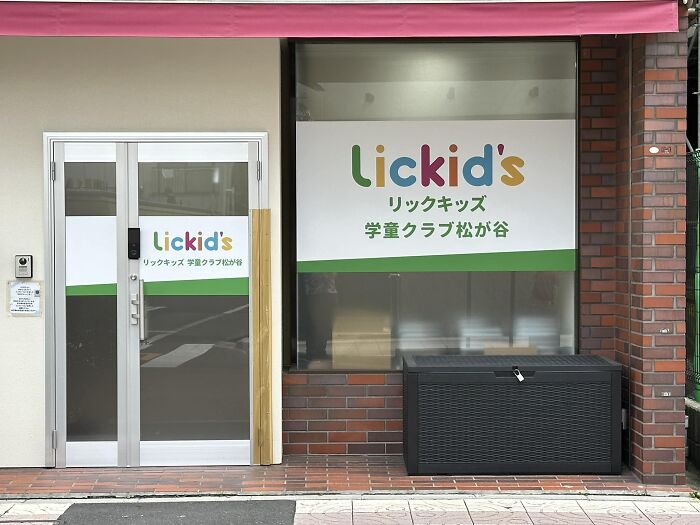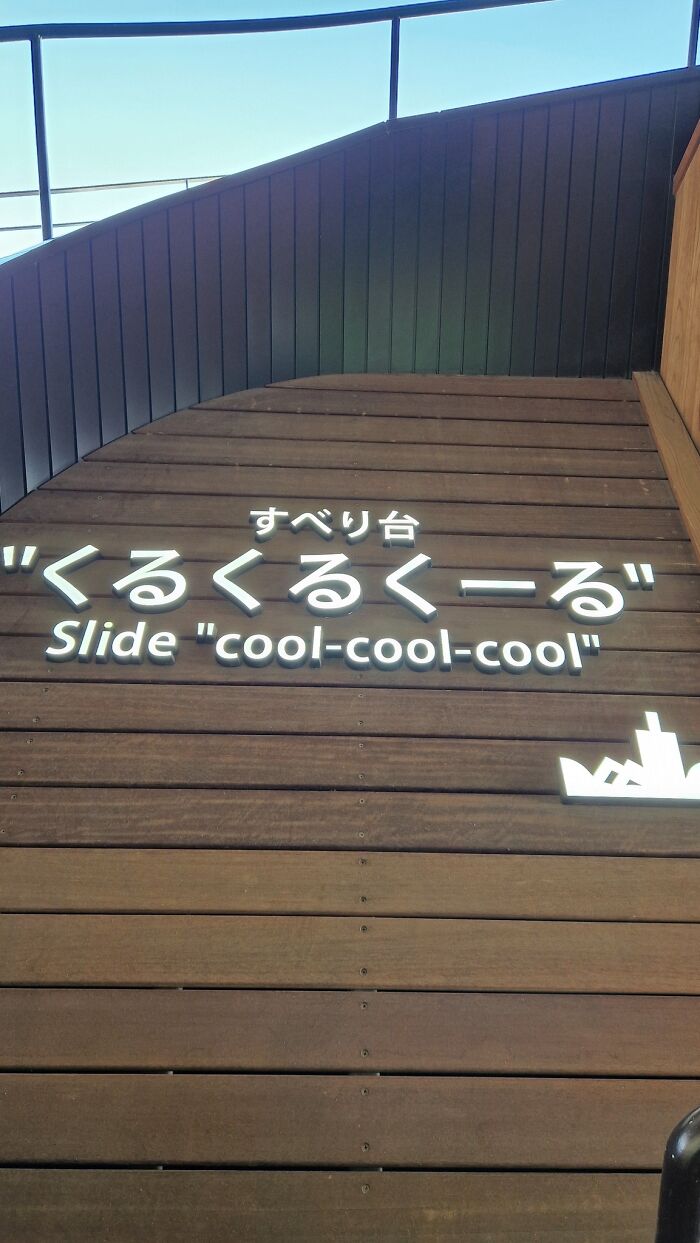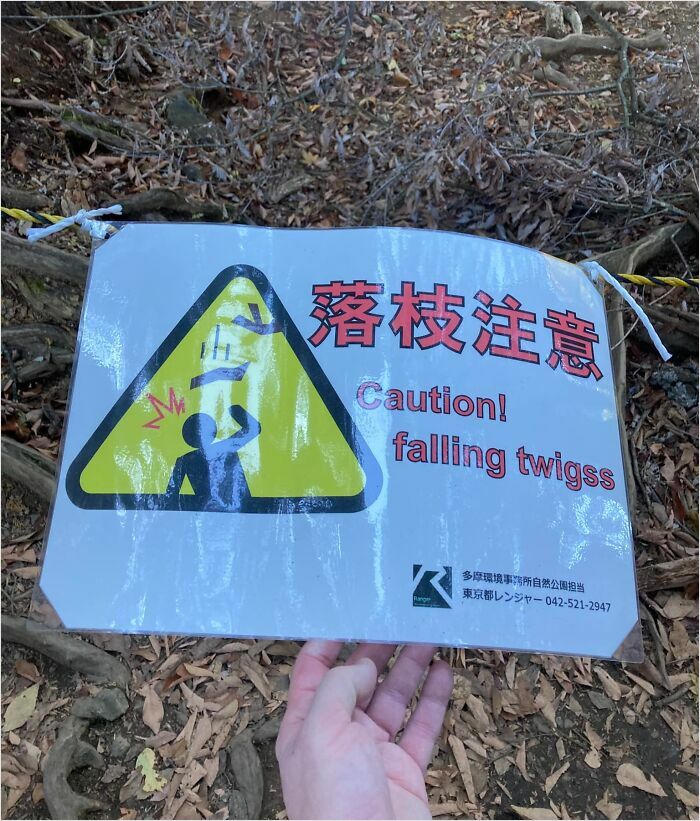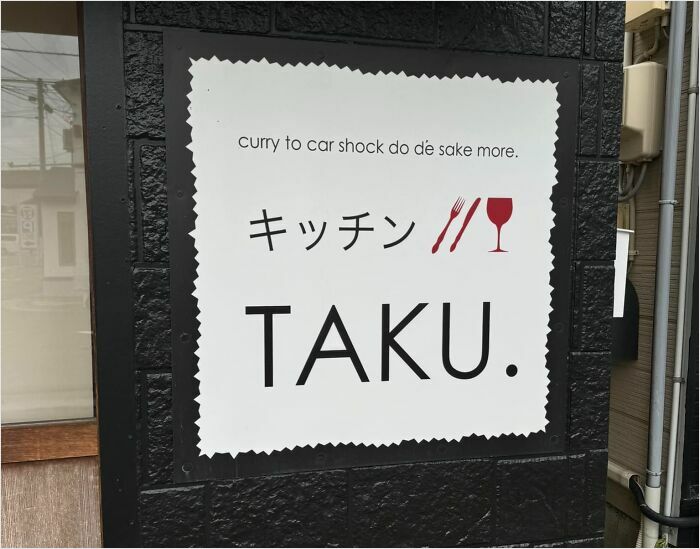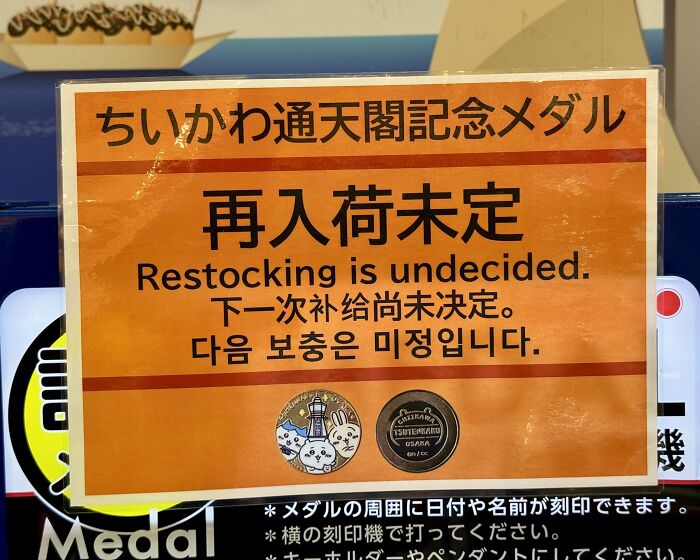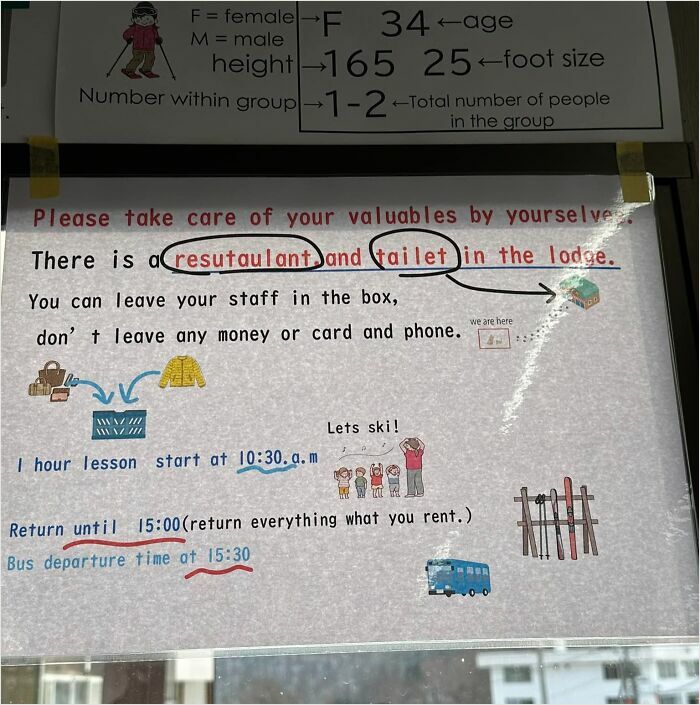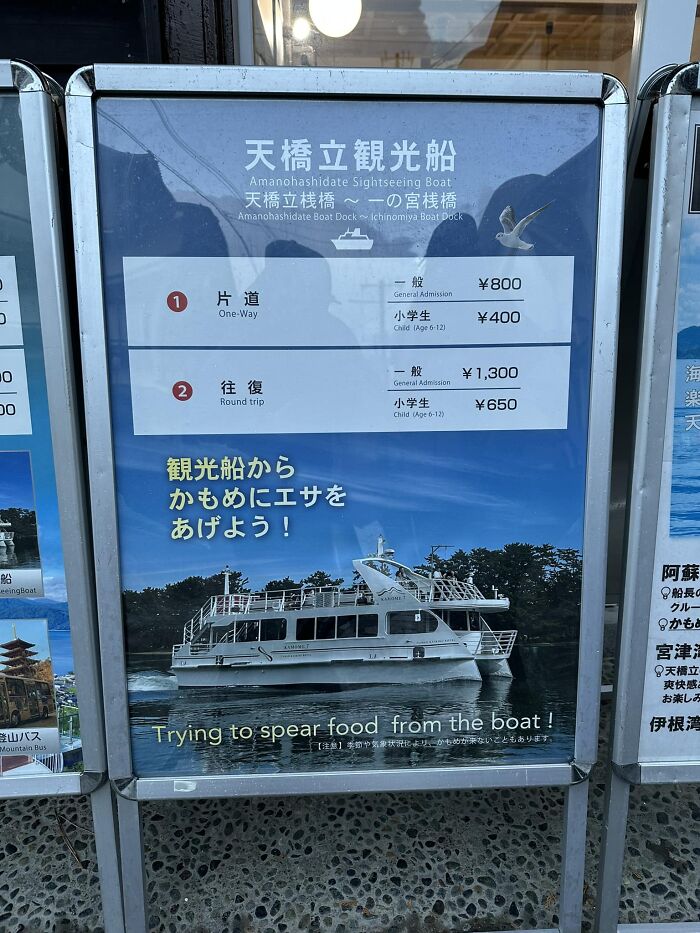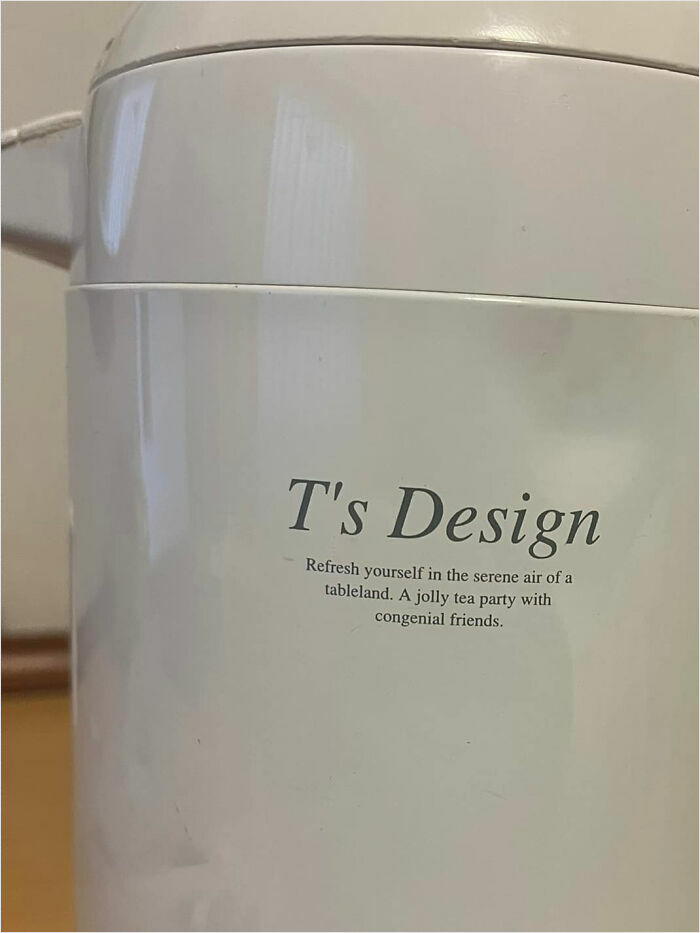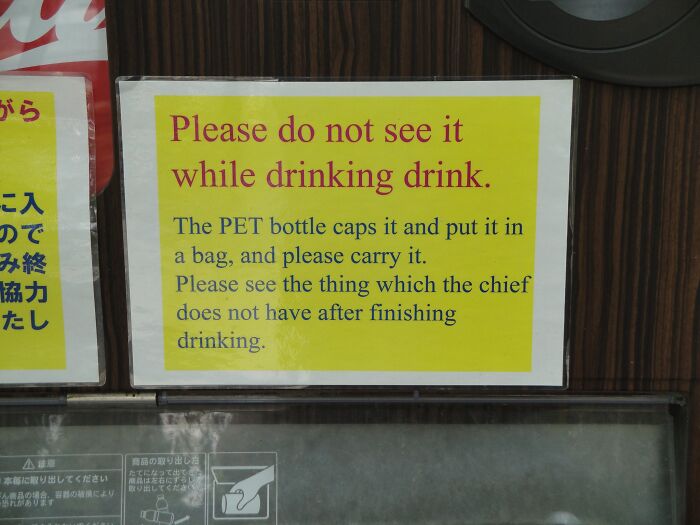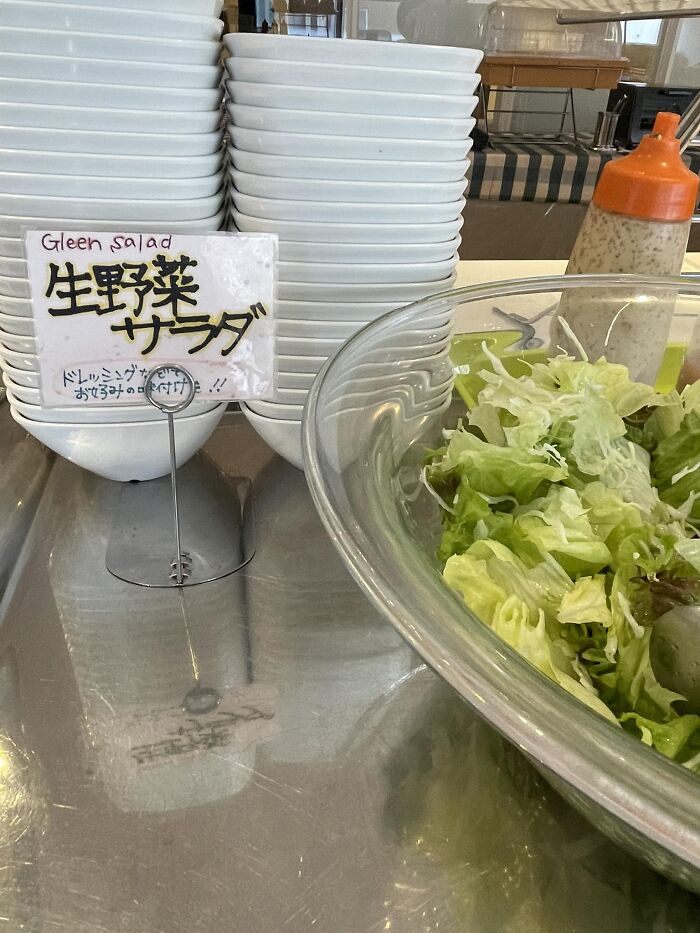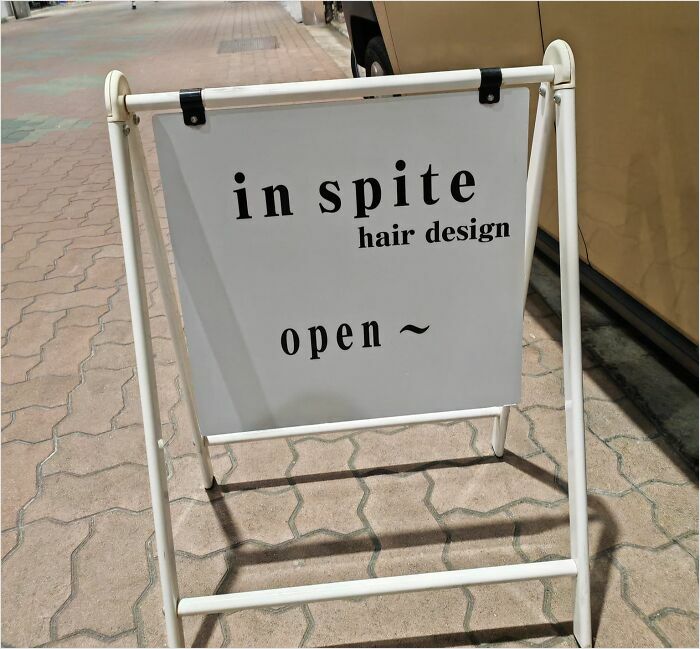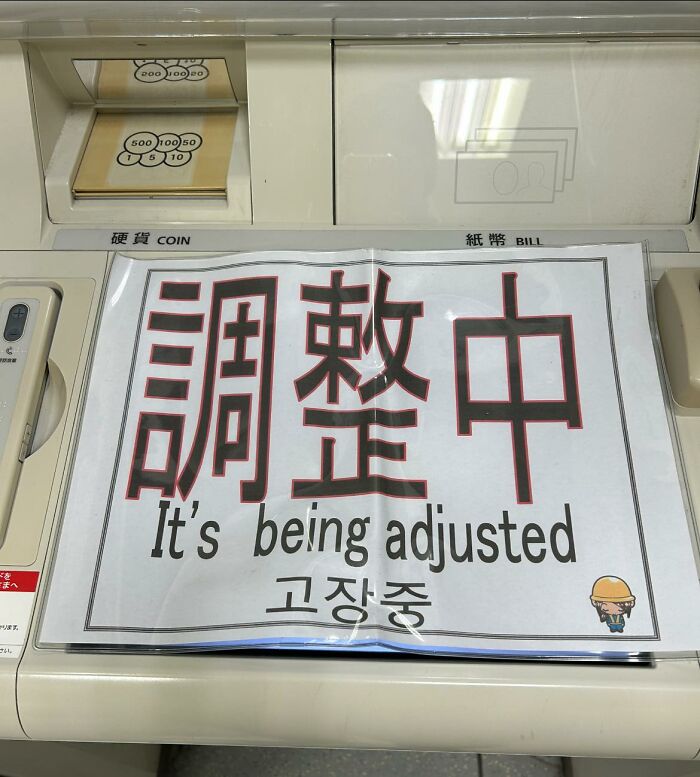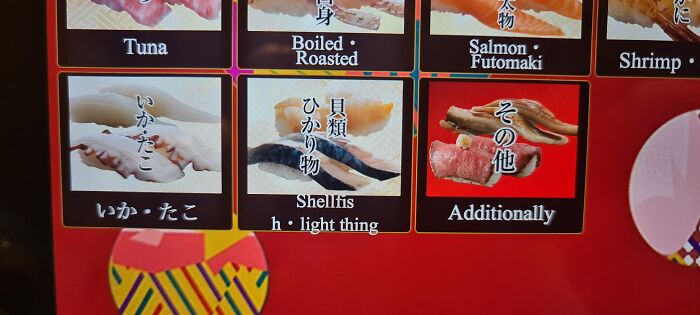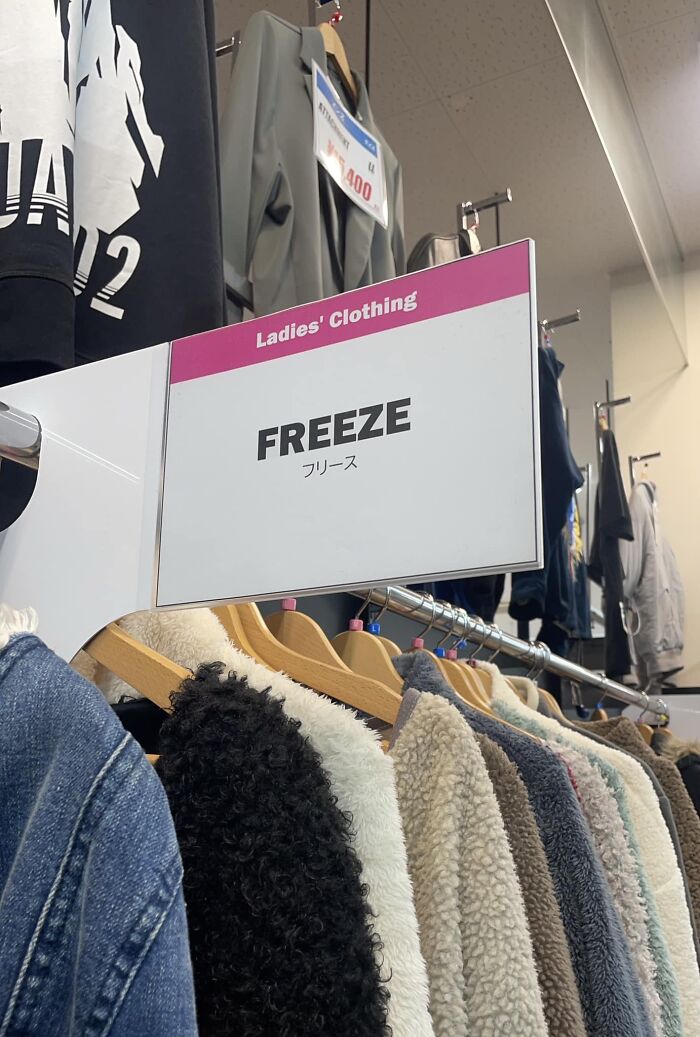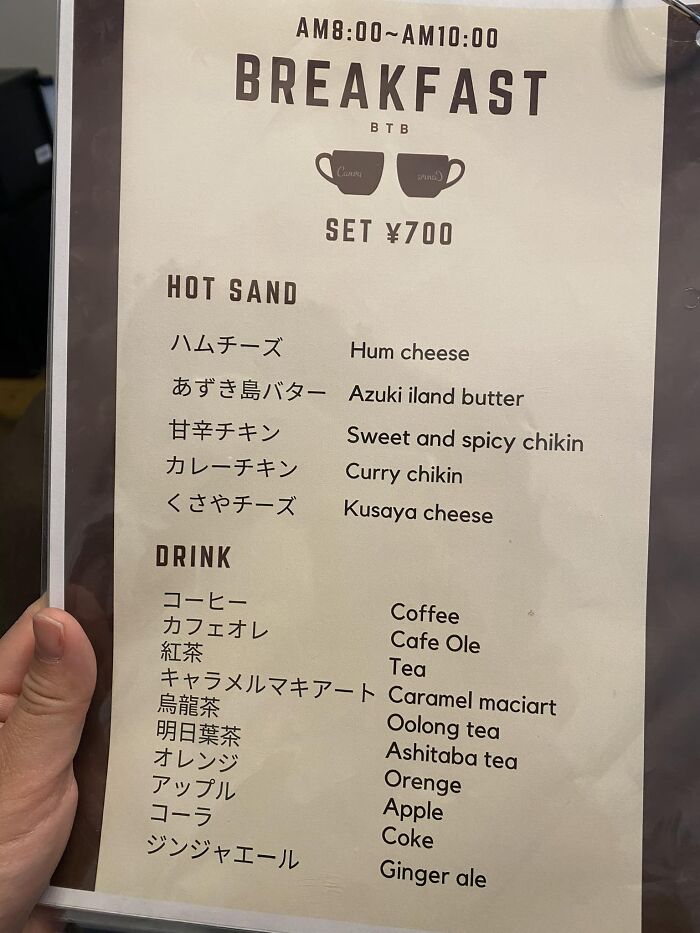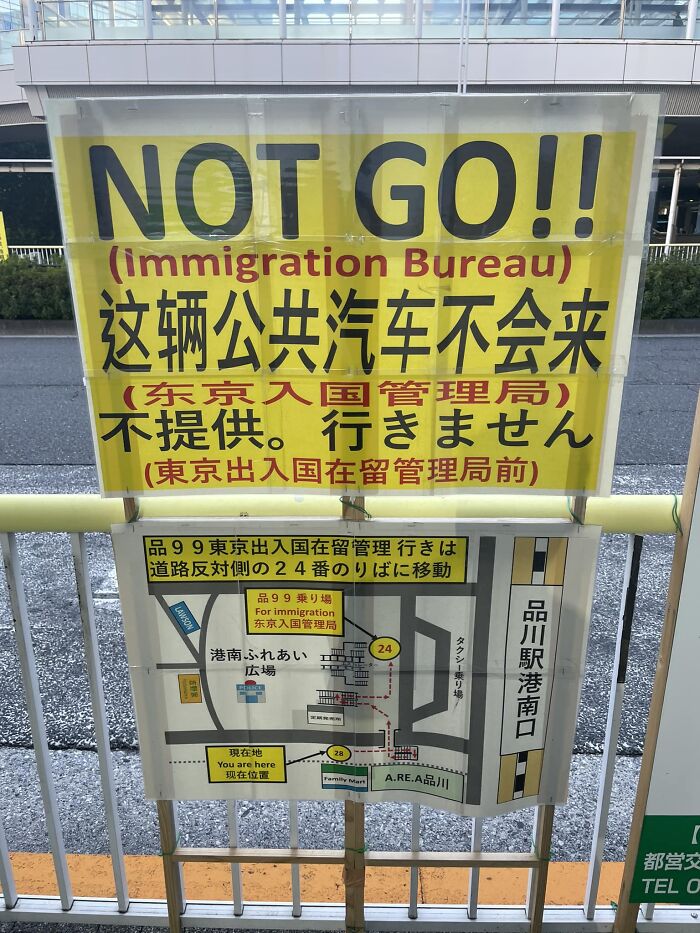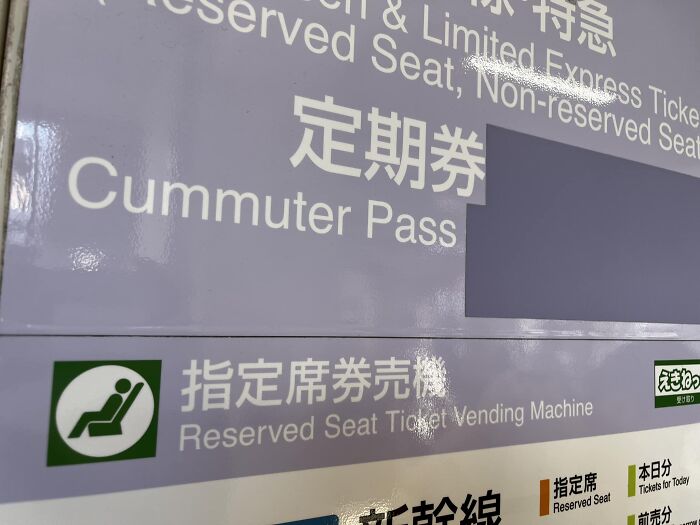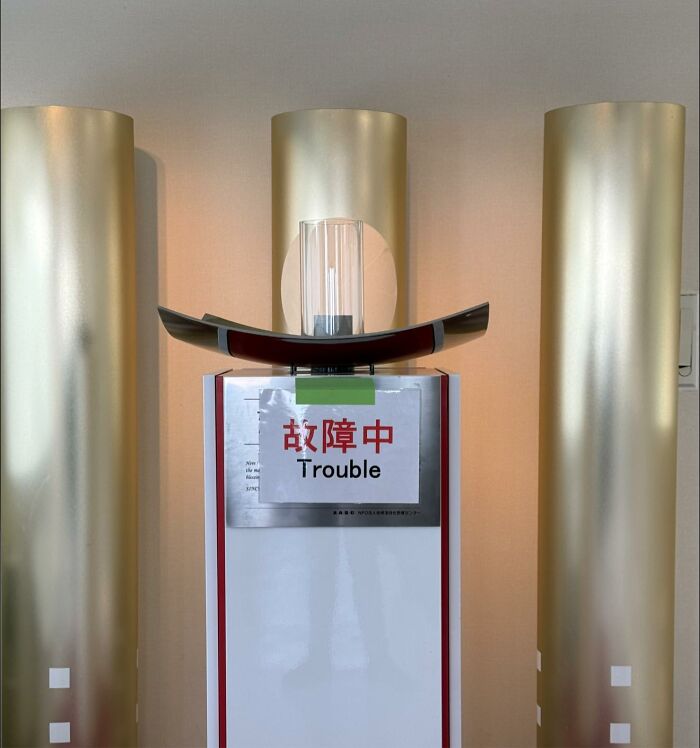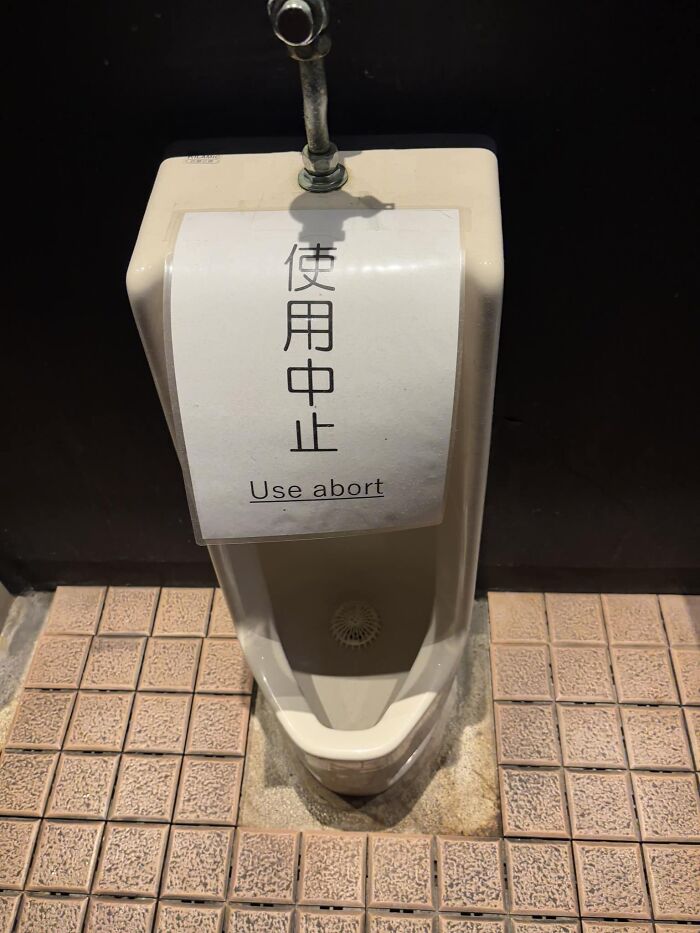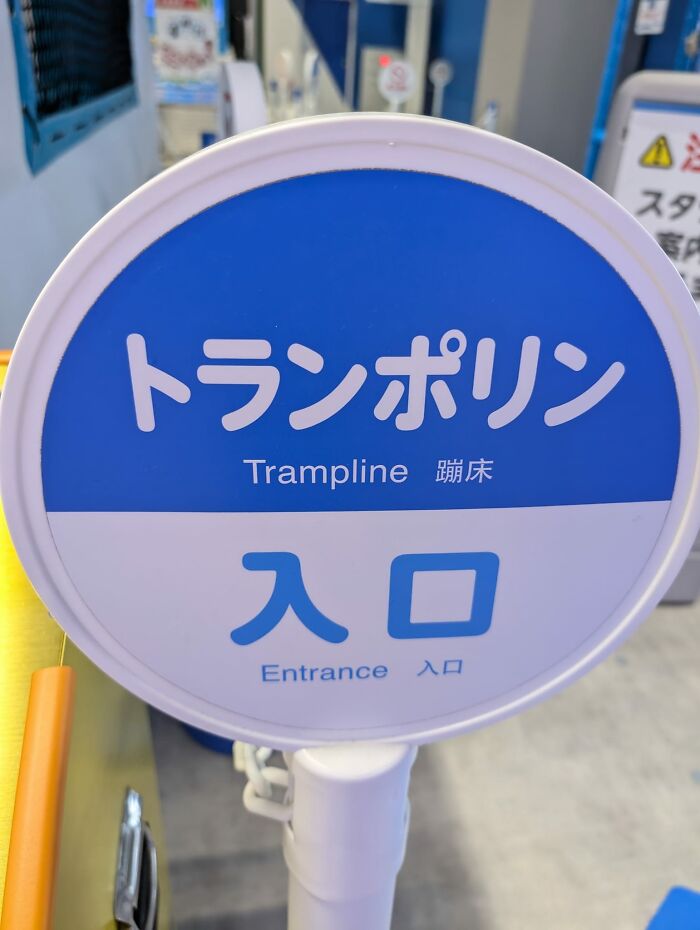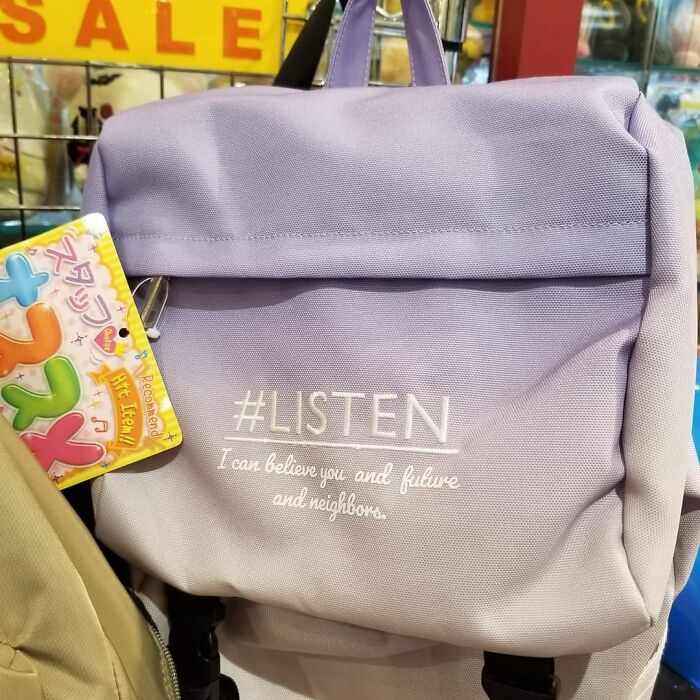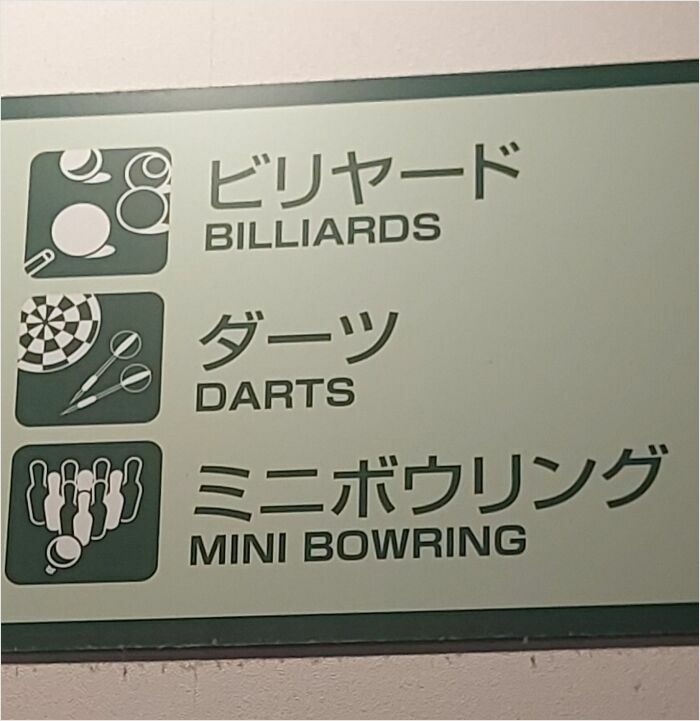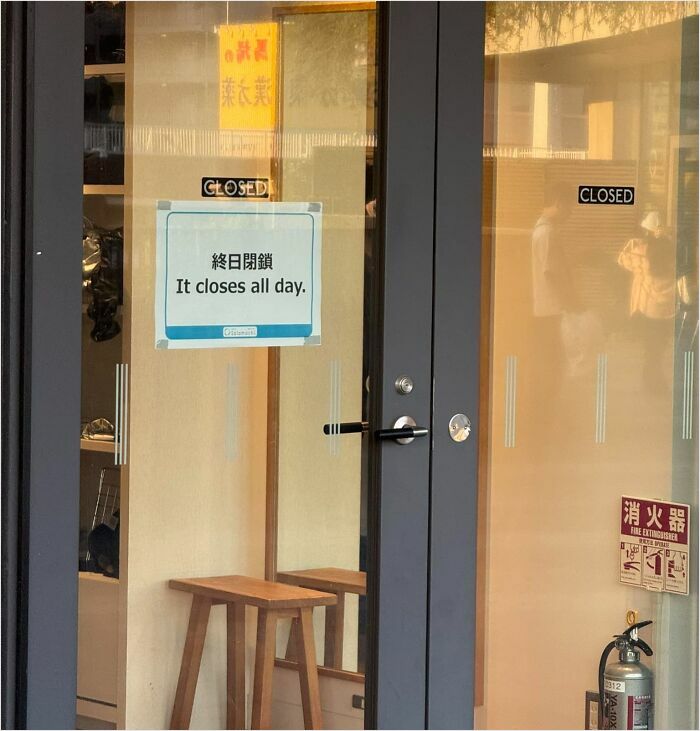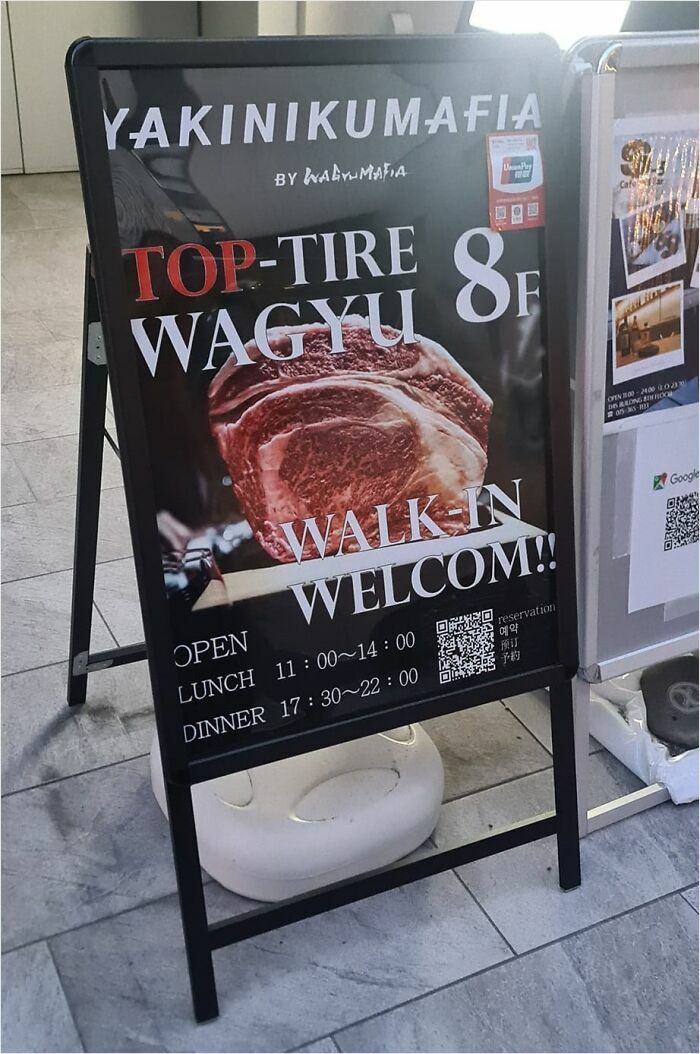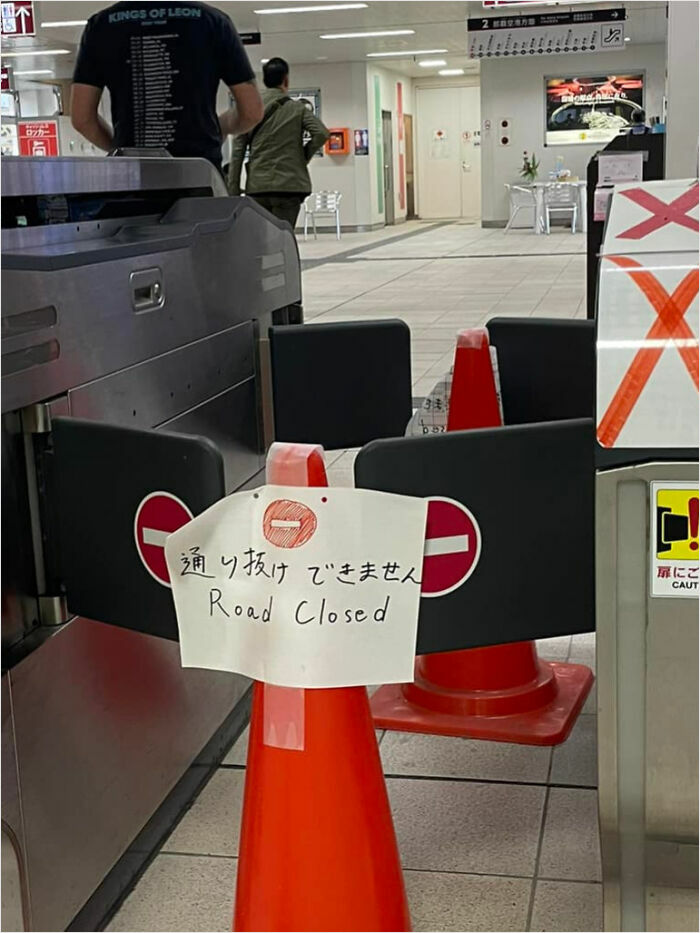"Engrish" is a slang term for poorly translated or inaccurate use of the English language, and there are many reasons why this might occur.
In an attempt to chronicle such—as they say—glitches, whiffs, and downright abuses, in one particular Asian country, a Facebook group called 'Engrish in Japan' was created in 2011. Through the years, the community has grown to include over 175,000 members and continues to promote lighthearted discussion and cultural exchange in an especially amusing way.
So, continue scrolling to check out some of the best/worst t-shirts, signs, and other artifacts they've found!
More info: Facebook
This post may include affiliate links.
Still Trying To Determine If This Is A List Of Available Amenities Or The Names Of Alternative Rock Bands That Have Stayed Here
But how comfortable are the sheep really? And I'm very curious about the entropy shower.
Memory Lane, Tokyo
We got in touch with the creator of the group and they were kind enough to tell us more about it.
"Over 13 some-odd years, and with Facebook's introduction of auto-moderation tools, it's not too heavy of a moderation burden," they explained to Bored Panda.
However, "We have three standard questions that users must answer to become a member, and they're supposed to read and agree to the guidelines. Only about a quarter of people who want to join the group actually do this, and of them, less than half actually answer them correctly. They're all declined quickly."
Therefore, "the most common issues are simply rejecting or blocking users who don't answer the questions or are spammers," the group's creator said.
Don’t Skateboard Or Whatever. You Know What We Mean, Don’t Make Me Write It All Out. All That Stuff You Do
This sign reminds me of the practical attitude of many Asian cultures vs the nitpicky 'legalese' of many Americans. Asian Sign: "Be respectful and don't screw up our stuff" Asian: "Okay, got it." American Sign: "No roller skating, skate boarding, horses, motorcycles, ATVs or pogo sticks." American: "Why are you upset? These are roller skates so TECHNICALLY not roller blades and my friend is on a razor scooter so not a skateboard." (I'm an American, but some of us are pretty ridiculous)
So Demanding
Beware Of Those Waiting For The Bus
"Similarly, with posts, if they don't follow the guidelines, they are rejected," the creator of 'Engrish in Japan' added.
"If their intentions are good and they clearly read the guidelines, we try to give them a short explanation of what they need to fix."
With all of that being said, moderation still remains a constant work in progress. "I've probably revised the guidelines and questions over 100 times ... I relaxed certain rules or added more if there was a recurring issue."
On A T Shirt In Osaka, Unsure What This Is Supposed Say But I Love It
Or What?
At A Hotel Lobby In Kyoto
Joined The Group Just To Post This - Everyone Needs To Know The Truth
Every now and then, the group also receives a guest appearance, and they're not just sad trolls. "We get non-Japanese who just want to be jerks or are spammers but, amazingly, we get many Japanese who think it's an English study group!"
However, while you're scrolling through the pictures, it's important to understand that the content isn't meant to insult the locals. In fact, "another common issue is making it clear that we're not making fun of anyone and we appreciate the intent," the creator of 'Engrish in Japan' said. "Most Japanese understand this just fine; it's white knight foreigners who sometimes have trouble grasping this."
"We make it a rock solid policy to not post any photos of people unless people want to post photos of themselves. We also make sure any personal information is blurred or cropped."
Crime-Fighting Toilet, In Praliva Shopping Center, Fukuoka
I Don't Actually Really Know What They're Trying To Convey Here
Fun fact, this is a reference to a song by Japanese band IOSYS! Their song 魔理沙は大変なものを盗んでいきました (Marisa stole the precious thing) has a few instances of bad English, one of which is "Why Why Why Why Why don't I miss you a lot forever?" I have to admit, I laughed out loud at this picture. :D
Kaitenzushi In Tottori
Well, who wants to eat an old chick if they can have a young one? Strictly talking about chickens!!
In A Furniture Store In Misawa, Japan
When it comes to the posts themselves, the group's creator said they’re mostly different takes on a set of recurring themes, like common misspellings, things you wouldn’t think twice about if you’ve been in Japan for any extended time, and some that aren’t particularly funny or interesting but just fit the theme.
The popularity of the group reflects a 2024 report in which Japan ranked 92nd in global English proficiency—last in the "low proficiency" category, escaping the "very low" category by less than one percent. The nation ended up near the bottom of Asian and developed countries alike. (For context, in 2019, Japan ranked 53rd.)
Remember, Owaki-San Is Not Liable For Any Disappoint
Inside A Mall Somewhere In Saitama
T-Shirt Spotted In Youmetown Nagasaki
So Let It Be
Experts suggest there can be many possible reasons for this, and the sheer difference between two languages certainly plays a role—whereas German and English are closely related, Japanese and English have extremely distinct vocabulary, writing systems, and sentence structure.
Teachers in Japan have pointed to English classes’ strict correspondence to university entrance examinations as a major cause of their students’ poor proficiency. They argue that the focus on exams leads to over-emphasizing grammar as well as boring, memorization-oriented classes.
Studies also suggest that Japanese culture's aversion to risk-taking leads many students to be reluctant to push their limits, especially in speaking, which is essential for language learning.
Stop The Floor
I Was Afraid To Look Inside
Ahh Sinamon
Heather Rucker, an associate language teacher with the government’s Japan Exchange and Teaching Program in Nagoya, said that when she initially followed the official lesson plans, a lot of her students tuned out and avoided participating.
“There are definitely kids who want to learn English and do things abroad in the future. But the others try to avoid taking part in class as much as possible,” she explained. “I try to make activities as fun as possible, so it won’t drag for them at least.”
Also, while the numbers might be different now, Ryuko Kubota, a professor of language literacy and education at the University of British Columbia, conducted a study in 2011 that showed English-language skills do not contribute to upward career mobility in Japan.
At The Security Checkpoint At Sakashita-Mon Gate (Entrance To The Imperial Palace)
Riffing On Italian Girl
What's with the Doberman?? I get the tower, pizza, and pasta reference but.....
When Did You Found ? I Found It In A Store Called Found Good
"The most continually active [members of the group]," the creator or 'Engrish in Japan' said, "are, understandably, long-term residents of Japan."
Of those, they assume, about 85% are non-Japanese and 15% are Japanese.
"There are also lots of people who just visit Japan once or twice and like to see and comment on the photos," they added. "And there are some Japanese members who get the joke and enjoy interacting with the others in the group."
It Says In Japanese Do Not Take The Toilet Paper Home/Away. The English Is Very Understandable
This one would confuse me. I don't need a sign to know not to steal, but I've been to countries / places where the signs asked you not to flush any toilet paper. (put it in waste basket). -- For anyone not aware, some places have very fragile sewage systems, so for example, some places in the Philippines don't want you to flush TP.
That Sure Will Hurt
One Of Many Excellent T-Shirts I Saw For Sale
"Most (like 95% of) members are great," the group's creator said. "But the common and unwelcome personas are the 'it's not Engrish!' types — the foreigners who want to show off their big brains and explain why it's not funny, and the Japanese who, despite [the group approaching the 180K member count], seem to think it's their job to explain what the sign actually intended."
"Like, they really think it's a big group of foreigners who are confused and can't read a lick of Japanese. In fact, we have thousands of Japanese members and many of our members speak Japanese well and understand what the writer intended when they made the Engrish."
New Kind Of Cocktails
This one is because of two sound quirks of the Japanese language. It copies a lot of modern terms from other languages, especially English, rather than try to invent ideograph-based characters (kanji) for them. An English syllable ending in “ar” or “er” will usually become “aa” because “r” can’t end a syllable or be followed immediately by a consonant in Japanese. The language also doesn’t have the “L” sound. When they transliterate English words that contain an “L”, it becomes “R”. If someone with weak English knowledge transliterates it back, they may not know whether the “aa” was originally “ar” or “er” or that the “R” sounds were originally “L” sounds. The katakana immediately below is pronounced in Japanese as “supaakuringu kakuteru”. Interestingly, while they didn’t know “sparkling”, they knew “cocktail”.
Would I Hesitate?
The fascination surrounding the imperfect translations or 'Engrish' resonates well with the phenomenon of humorous slogans on t-shirts.
Just like the Engrish in Japan Facebook group, the Twitter account dedicated to these tops brings a lighthearted touch to language mishaps. With a shared theme of laughter through linguistic blunders, both platforms emphasize cultural differences in a way that brings joy rather than confusion.
I Was Looking For A Sign… And There It Was
In Fuchu. Not Terrible, But A Bit Vague
At A Delicious Bakery In Kakogawa. Very Presumptuous
Kinkaku-Ji, Kyoto
Found In Mojiko, Kyushu
A Poem
Cape Tachimachi, Hakodate
On A Flyer I Received In The Mail At My Home In Tokyo For A Children’s Demand Video Service
Feel Like You Are In A Hot Spring With Monkeys! When You Use This Bath Powder
I think this a real saying in Japan, it just doesn't translate well literally to English.
No, It's Mine
At Tokachigawa Onsen
Himeji Is Offering Us Machines We Can Wash. I Have To Say It's About Time! You Can't Stop Technological Progress
At The Gift Shop
Like all the TikTok girls that liked to smell the colon of their boyfriends...
Cardi B Was Here
Inside A Bungalow In Shimanto, Kochi
Don’t Ride People
A Toilet Challenge! Taken At The Japan Open Air Folk House Museum In Kawasaki, December 2023
It's saying you can stand on it to see how it feels to use one of these toilets. But please don't actually urinate/defecate in it. Obviously someone tried or they wouldn't need the sign. :)
Too Bad. Actually I Had The Intention To Explore Kyoto After Breakfast- But I Need To Go Back To My Room
No, Please Don’t. Seen In Taito-Ku, Tokyo
Sounds Similar. Must Be Fine
This one’s weird. The words shouldn’t have been transliterated directly into English, because they’re written in hiragana, which is used for words of Japanese origin, not katakana, which is used for words from other languages. “Kurukurukuuru” roughly translates to “spinning around”.
Mmmm… 1 Large Chicken Discharge Please
Abunai Yo
I Have No Idea What This Restaurant In Niigata Is Trying To Say
They Must Have Run Out Of Something And Can’t Decide If They’re Going To Restock It
I Think They Might Hate Their Staff
Don’t Get Too Excited, No Spearfishing Will Be Done On This Sightseeing Boat. The Seagulls Are The Ones “Spearing” The Food Out Of Your Hand
Found In Hakuba
Found This Gem In Kyoto
On The Electric Tea Kettle In A Mid Kakogawa Hotel Room
At A Rest Area Where Drinks Were Available
Please Enjoy Your Gleen Salad
Angry Hairdressers Found In Satake Street, Taito
ATM Hyogo Prefecture
"Light Thing"
I Want To Eat Past
So they left off the final 'A' in 'pasta'. It's still perfectly understandable. Heck, I've seen native English speakers with far worse spelling than this!
I Guess They're Technically Right... When It's Freezing, A Fleece Jacket Comes In Handy
Menu From A Bnb In Izu Oshima
Actually This Bus Does Not Arrive At The Immigration Bureau
Surprisingly Liberal Train Etiquette Policy At Shin Matsudo Station
Yikes
I remember quite a while ago seeing ads for a men's cologne called "Trouble". Could this be the same thing?
At Mt Aso, Kusasenri
Funnily Abort is an old german term for toilet, loosely translated to "remote place" describing an outhouse.
The Ole Trampline
When We Lived In Japan, I Saw This Bag In A Store
Mini Bowring Was A Unique Experience
He Played As A Tank Today
Two For The Price Of One
So they spelled 'tier' as 'tire'. I'm not a huge fan of Wagyu beef, but it's nowhere near like eating a tire. On the other hand, it *is* the Yakiniku Mafia, so you never know; maybe it *is* a tire!
Train Station In Naha, Okinawa Japan
Cake Box In Kyushu
Wait, when did BP change from "this list has been shortened, but click here to see the content that was deemed not so good" to "pay extra to see the content we cut because it was the bottom of our list"? And am I the only one to think that's just plain stupid? 🤣🤣🤣
Their command of my language is better than mine of theirs so I’ll leave ‘em alone.
Wait, when did BP change from "this list has been shortened, but click here to see the content that was deemed not so good" to "pay extra to see the content we cut because it was the bottom of our list"? And am I the only one to think that's just plain stupid? 🤣🤣🤣
Their command of my language is better than mine of theirs so I’ll leave ‘em alone.

 Dark Mode
Dark Mode 

 No fees, cancel anytime
No fees, cancel anytime 


